Rechercher dans ce blog
Wednesday, February 28, 2018
Concerns Mount in Egypt as Ethiopia's Renaissance Dam Nears Completion
[unable to retrieve full-text content]
Five years after Ethiopia began construction of the Renaissance Dam on the River Nile, downstream neighbors Egypt and Sudan worry about impact on the river's water levels and potential harm to agriculture and industry. Read More Concerns Mount in Egypt as Ethiopia's Renaissance Dam Nears Completion : http://ift.tt/2oF6WorUN Sets Up 'Helpline' to Fight Sexual Harassment Among its Own
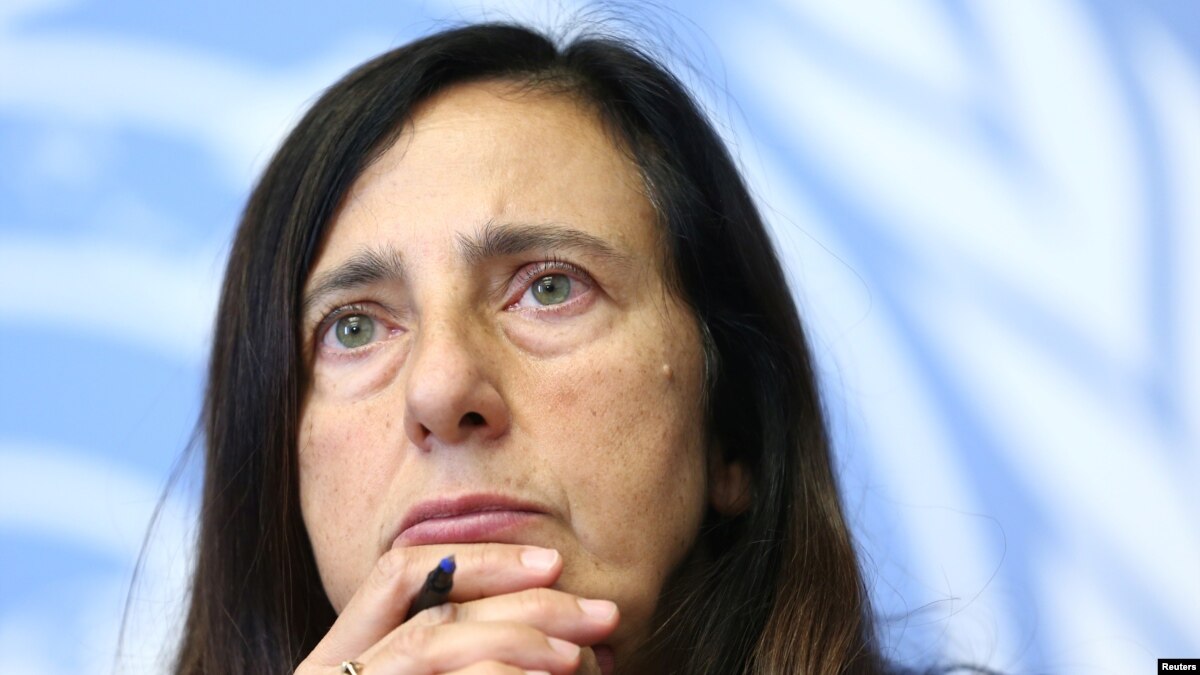
The United Nations has set up a 24-hour helpline to fight sexual harassment among its staff in the workplace as part of its Zero Tolerance policy regarding sexual exploitation and abuse.
The so-called “Speak Up” hotline is part of the U.N. Secretary-General’s wider initiative to fight sexual harassment and to support victims and witnesses. U.N. spokeswoman in Geneva, Alessandra Vellucci, explains U.N. staff can call the helpline 24 hours a day to speak confidentially to a trained, impartial person about problems of sexual abuse and to provide information.
She says the United Nations also is creating a specialized team to investigate cases of sexual harassment.
“Particular attention of this would be on increasing the number of female investigators," she said. "So, basically we are strengthening our tools to answer to this problem and put victims at the core of our action.”
While the United Nations can deal with internal problems of sexual harassment, Vellucci says the organization has no control over the behavior of U.N. peacekeepers. She says it is ultimately the responsibility of the member state of the soldiers accused of sexual misconduct to investigate and prosecute these crimes.
Officials from U.N. agencies condemned the recent reports that local workers and private charities were trading food and other assistance for sexual favors from Syrian women. U.N. refugee spokesman Andrej Mahecic calls the practice despicable and dehumanizing.
“But the mere suggestion that the U.N. can somehow control the situation in a war zone and the implied conclusion that we can somehow turn this on and off is rather simplistic," said Mahecic. "It is disconnected from the reality of what an aid operation looks like in an open and fierce conflict.”
The UNHCR and other U.N. aid agencies say their partners must adhere to a strict code of conduct, which covers sexual exploitation and abuse. They say any U.N. personnel found to be in breach of the code would be subject to disciplinary measures, including dismissal from service.
Read More UN Sets Up 'Helpline' to Fight Sexual Harassment Among its Own : http://ift.tt/2t7dIckUN Needs $278 Million to Fight Violence, Human Rights Abuse Worldwide
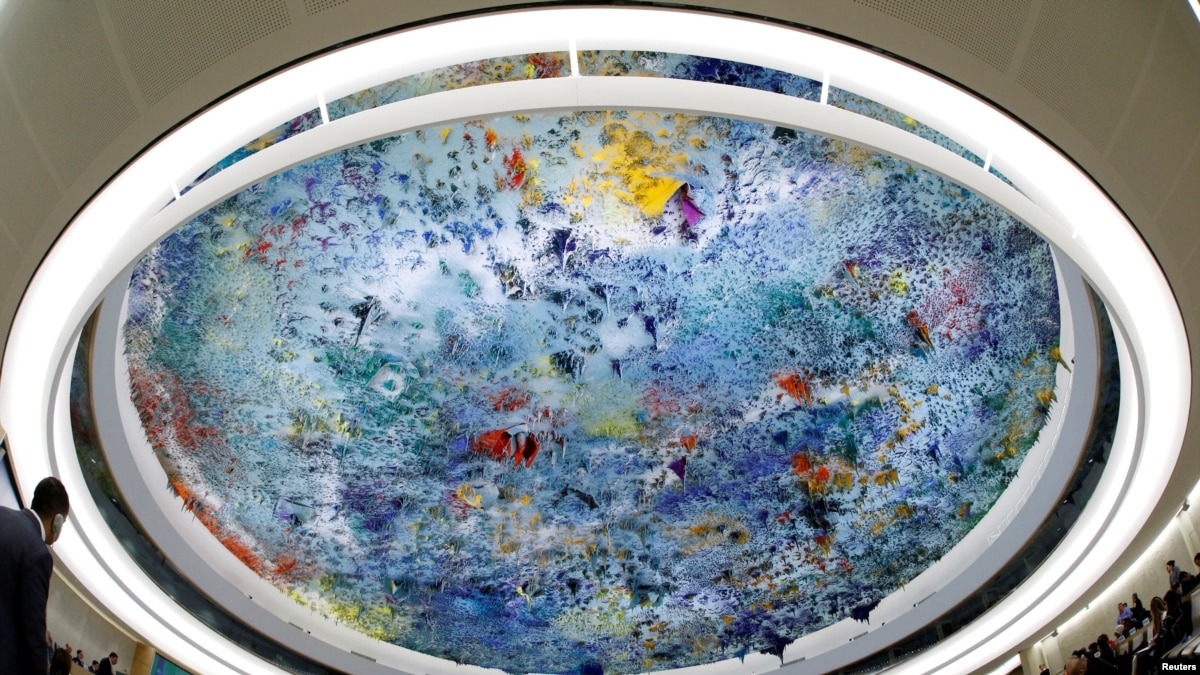
The U.N. Human Rights Office is appealing for $278.3 million in voluntary contributions to monitor human rights abuse worldwide and help prevent violence.
The U.N. Human Rights Office warns of a global pushback on human rights. It says this is all too visible in the slowing commitment by governments to uphold human rights values in places such as Syria, Yemen, Democratic Republic of Congo, Burundi and Myanmar.
Spokeswoman Liz Throssell says this lack of commitment translates into lack of support from the international community to provide the funds necessary to carry out the agency’s important work.
She tells VOA the agency’s achievements often go unrecognized. For example, she says the help offered to victims of torture or other abuse usually occurs away from the blinding light of the media.
“Through the voluntary funds that we have, 45,000 victims of torture were helped to be rehabilitated," she said. "Our colleagues who work in our 60 plus offices or field presences around the world monitored 567 trials…There is lots of training that goes on around the world and maybe that is quite hard to sell as something sexy. But, it is really important and fundamental.”
Throssell says these training courses teach governments and civil society how to monitor human rights abuses, how to access justice, and how to set anti-discrimination standards.
Currently, only 63 countries are making voluntary contributions to the Human Rights Office. Throssell says this list of donor countries needs to expand. She says Norway and other Scandinavian countries are pledging to increase their contributions.
However, she says the word is still out on the United States, which traditionally has been the agency’s biggest donor. The U.S. Congress is in the process of discussing the issue and will make a decision toward the end of March.
Last year, the U.S. voluntary contribution was just over $20 million. This year, there are questions of how much Washington will contribute after the Trump administration in December announced a $285 million cut in overall U.S. contributions to the United Nations - a move the U.S. administration blames on ineffeciency and overspending at the United Nations.
Read More UN Needs $278 Million to Fight Violence, Human Rights Abuse Worldwide : http://ift.tt/2oAnbmSTuesday, February 27, 2018
White House: Trump, Saudi and UAE Leaders Discuss Iran
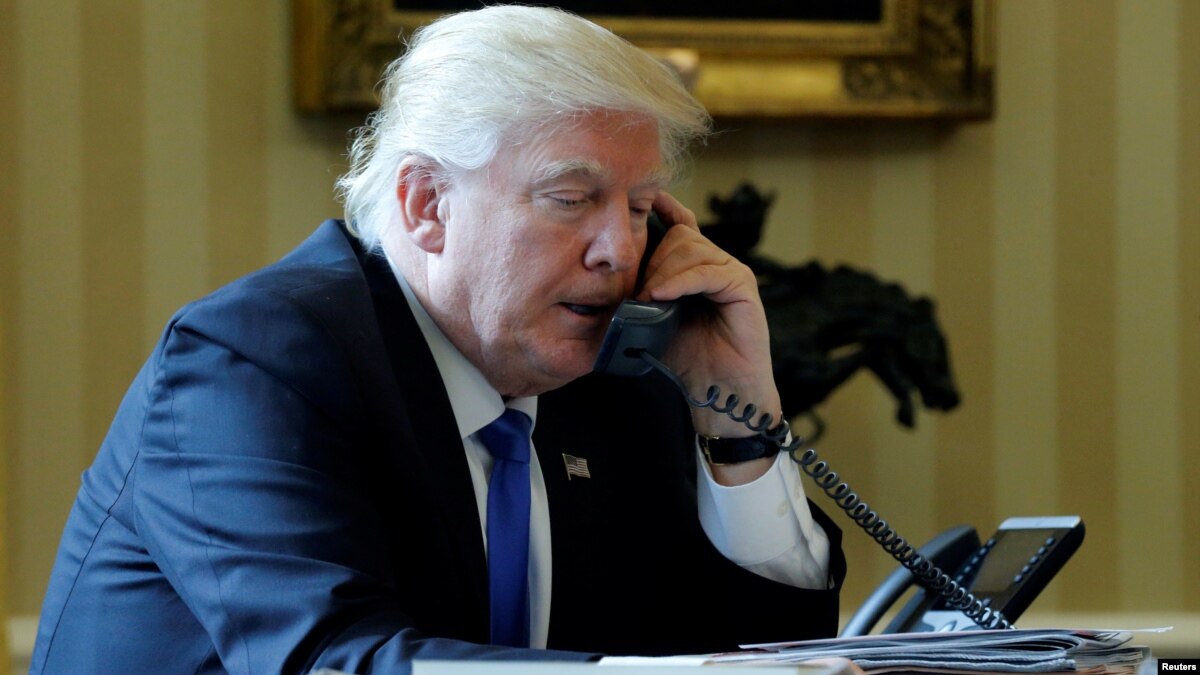
U.S. President Donald Trump discussed Iran’s “destabilizing activities” and other security and economic issues in separate telephone calls with senior Saudi and Emirati leaders Tuesday, the White House said.
In calls with Saudi Crown Prince Mohammed bin Salman and Abu Dhabi Crown Prince Sheikh Mohammed bin Zayed al-Nahyan of the United Arab Emirates, Trump thanked them for highlighting ways that Gulf Arab states “can better counter Iranian destabilizing activities and defeat terrorists and extremists,” the White House said.
Saudi Arabia and the UAE, along with Bahrain and Egypt, cut off travel and trade ties with Qatar in June, accusing it of supporting terrorism and their archrival Iran. The United States is trying to resolve the dispute.
Qatar denies the charges and says the four Arab countries aim to curtail its sovereignty.
The two crown princes, as well as Qatar’s Emir Sheikh Tamim bin Hamad al-Thani, are planning to visit Trump for bilateral meetings in March and April, a senior U.S. official said Friday.
The agenda for the meetings will include setting up a summit of the six-member Gulf Cooperation Council, the official said, which Washington hopes will be held later this year, as well as Middle East peace and Iran.
Trump also discussed enhancing bilateral partnerships on security and economic issues with the Saudi and Abu Dhabi crown princes, the White House said.
Read More White House: Trump, Saudi and UAE Leaders Discuss Iran : http://ift.tt/2CpCVlYKey US Lawmakers Want to Boost Israel's $38 Billion Defense Aid Package
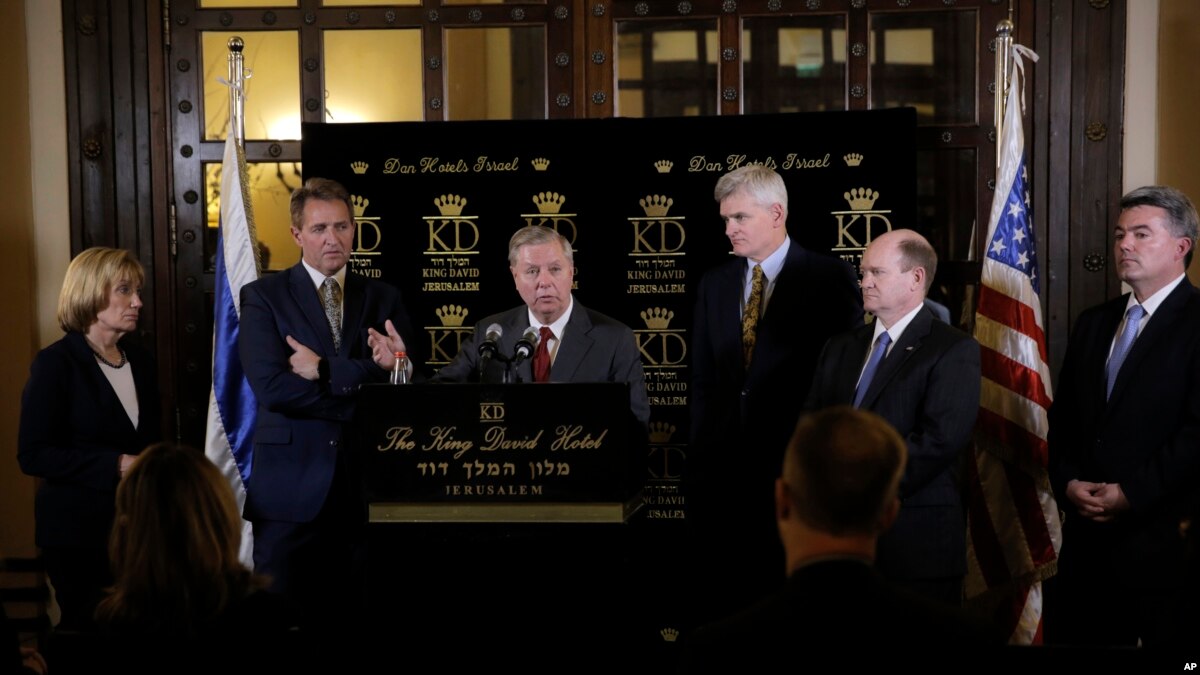
U.S. senators who just returned from a trip to Israel called Tuesday for an increase in the $38 billion in military aid the United States is currently providing Israel, signaling support for more funds for Israeli missile systems.
Senators Lindsey Graham, a leading Republican foreign policy voice, and Chris Coons, a Democratic member of the Senate Foreign Relations Committee, said they considered the provision of $38 billion over 10 years "a floor."
Graham said during a meeting with reporters that he thought provisions in the agreement phasing out an arrangement in which Israel could spend U.S. funds on its own defense industry and the provision of just $500 million in missile defense funding were "short-sighted."
Coons said tensions in the broader region supported the idea of more funding for Israel, citing the ongoing war in Syria and Iran's recent use of a stealth drone.
The United States and Israel signed an agreement in September 2016 to give Israel $38 billion in military assistance over the next decade, the largest such aid package in U.S. history but one that included concessions by Israel's government.
Read More Key US Lawmakers Want to Boost Israel's $38 Billion Defense Aid Package : http://ift.tt/2ouz8LQExperts: Syria Faces 2 Million Lawsuits Over Lost, Damaged Property
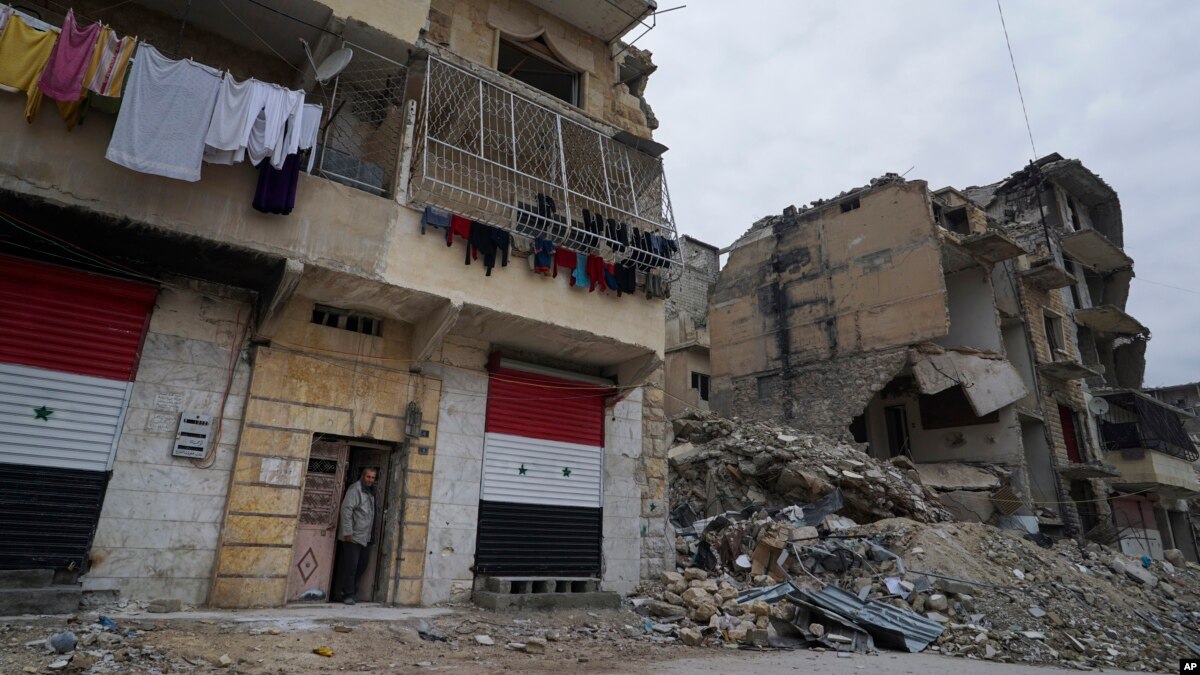
Syrians are likely to file more than 2 million lawsuits seeking restitution for lost and damaged property, experts said Tuesday, emphasizing the need to work on a solution even while the civil war continues.
The conflict will enter its eighth year next month, having killed hundreds of thousands of people and forced half of the prewar population of about 23 million from their homes.
Few know when or whether they will be able to return and reclaim their property, much of which was not registered before the war began, experts said.
"The main issue is the destruction and damage to property, but a lack of documents and uncertainty over home ownership are also creating huge challenges," said Laura Cunial, a legal and housing expert at the Norwegian Refugee Council (NRC).
"If you're going to have 2 million lawsuits in the courts when the war is over, that's going to be taking a long time if nothing is done about it before," she told delegates at the first Arab Land Conference in Dubai.
The war has destroyed many Syrian land registries, while a large proportion of displaced people have lost their ownership documents or lacked them in the first place, Cunial said.
Documentation gap
Syria had started to digitize land records just before the conflict began, leaving a huge documentation gap and complicating efforts to evict illegal tenants from properties.
Nearly half of Syrian refugees surveyed by the NRC and the United Nations refugee agency (UNHCR) said that their home had been destroyed or damaged beyond repair by the war, Cunial said.
Just 9 percent had their property title deeds with them and in good condition, according to the survey published last year.
Experts said even though postconflict property restitution was a right under international law, it could prove costly and complicated if a country waited until fighting ceased.
"At this moment we don't know whether there will be a special process for housing, land and property issues after the war," said Karolina Lindholm Billing, UNHCR deputy regional representative, who has worked with Syrian refugees in Lebanon. "It will be critical to have in place a dedicated, equitable and transparent process to resolve these issues in a timely manner."
The situation is further complicated by Syrian property law's complexity, including cultural practices that led to the transfer of title deeds within families over generations, and a land administration system dating back to the Ottoman empire.
Despite its importance, resolving property ownership was just one of many steps to peace, said Javier Molina, senior land tenure expert at the U.N.'s Food and Agriculture Organization.
"Land is not just an economic asset but a cultural one, too, and that has to be recognized," he said.
Read More Experts: Syria Faces 2 Million Lawsuits Over Lost, Damaged Property : http://ift.tt/2EWdNotPolish President Visits Jewish Center Amid Holocaust Dispute
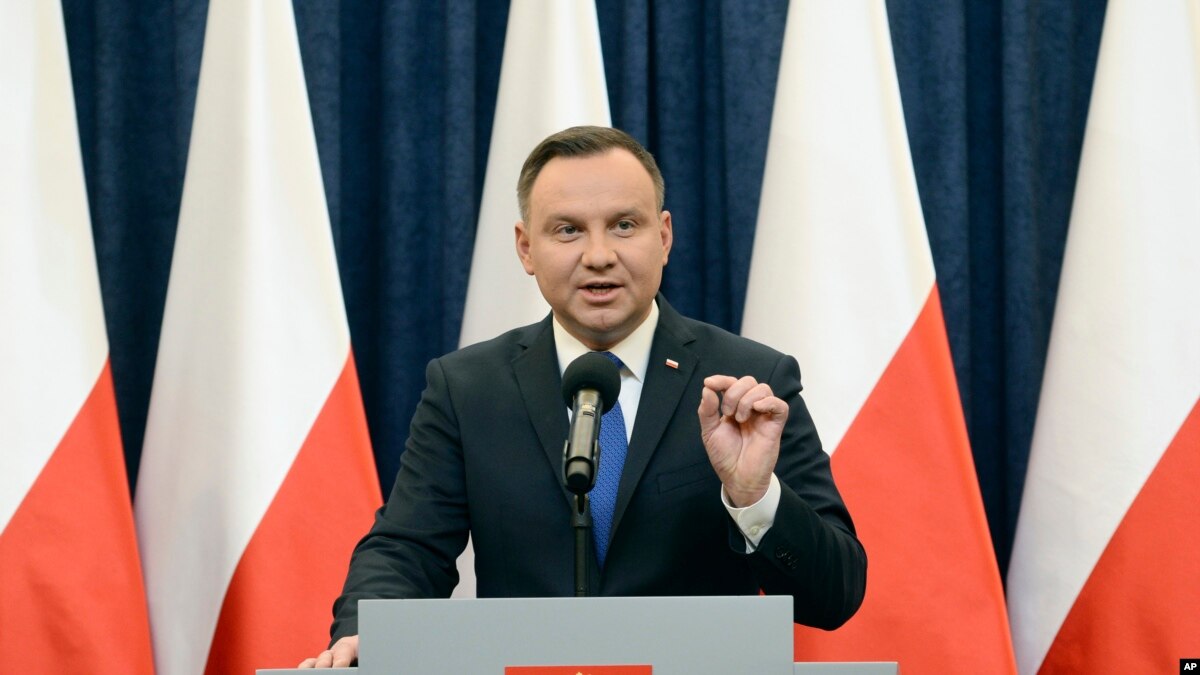
Poland's president visited a Jewish community center Tuesday amid an upsurge of domestic anti-Semitism and international criticism of a new law that makes it a crime to blame Poland for the Holocaust crimes of Nazi Germany.
In a conciliatory gesture, President Andrzej Duda visited the Jewish Community Center in Krakow, the southern Polish city that was home to a vibrant Jewish community before it was decimated during World War II.
Elderly Holocaust survivors gather at the center, but it also houses a nursery and preschool - a reflection of the re-emergence of a Jewish population in Poland.
During his visit, Duda stressed his appreciation for Jewish culture and its role in Poland.
"Many people in Poland's culture, (like) wonderful poets with Jewish roots, had a great contribution to what we today call Poland," Duda said.
The new law, which allows prison sentences of up to three years for falsely attributing the Holocaust crimes of occupying German Nazis to Poles, has angered Israeli officials. Their vocal opposition sparked anti-Jewish remarks in Poland's public media by some right-wing commentators and elected officials.
"Anti-Semitism must be fought on the social and on the state level," Duda said at the center.
Polish officials have said the law was needed to fight untrue statements about Poland's part as a state in the Holocaust. Critics in Israel say it could stifle research and have alleged it is an attempt to whitewash the wartime deeds of some Poles who turned against their Jewish neighbors.
Duda expressed hope that the "dissonance, not a crisis" with Israel will be resolved. He said he thinks the bilateral relations laboriously built in the decades since Poland became a democracy won't suffer.
"It is a heartache to think that anything of that could be lost," Duda said.
A team of Polish historians is traveling to Israel Wednesday to discuss the law. The Israeli and Polish prime ministers agreed in January that such a meeting could help reduce tensions over the law.
"The purpose of the dialogue is preserving historical truth and preventing damage to freedom of research and speech," the Israeli Foreign Ministry said.
In a tweet marking the anniversary of the rekindling of official bilateral ties in 1990, the Israeli Embassy in Warsaw said it was "looking to the future with hope for the return of a constructive cooperation and a friendly dialogue."
Read More Polish President Visits Jewish Center Amid Holocaust Dispute : http://ift.tt/2F0nYELConcerns Mount in Egypt as Ethiopia's Renaissance Dam Nears Completion
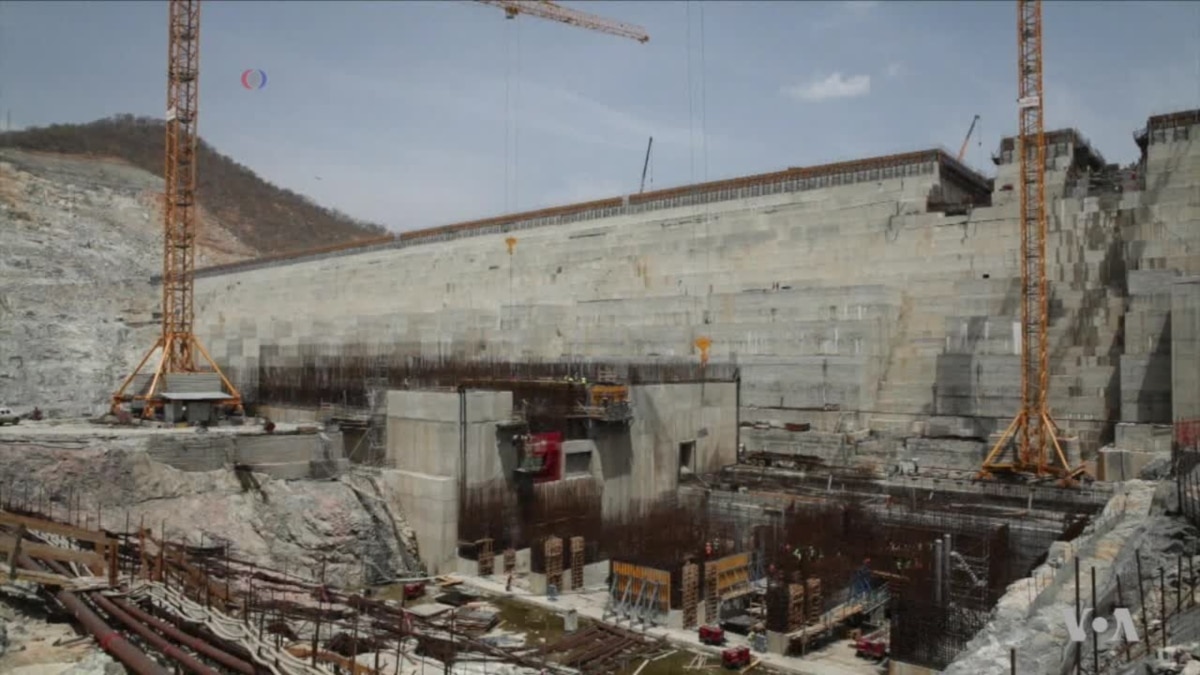
Five years after Ethiopia began construction of the Renaissance Dam on the River Nile, downstream neighbors Egypt and Sudan worry about impact on the river's water levels and potential harm to agriculture and industry. Negotiations continue, though as Edward Yeranian reports for VOA from Cairo, no agreement is in sight.
US Adds Several Islamic State Affiliates to Terror List
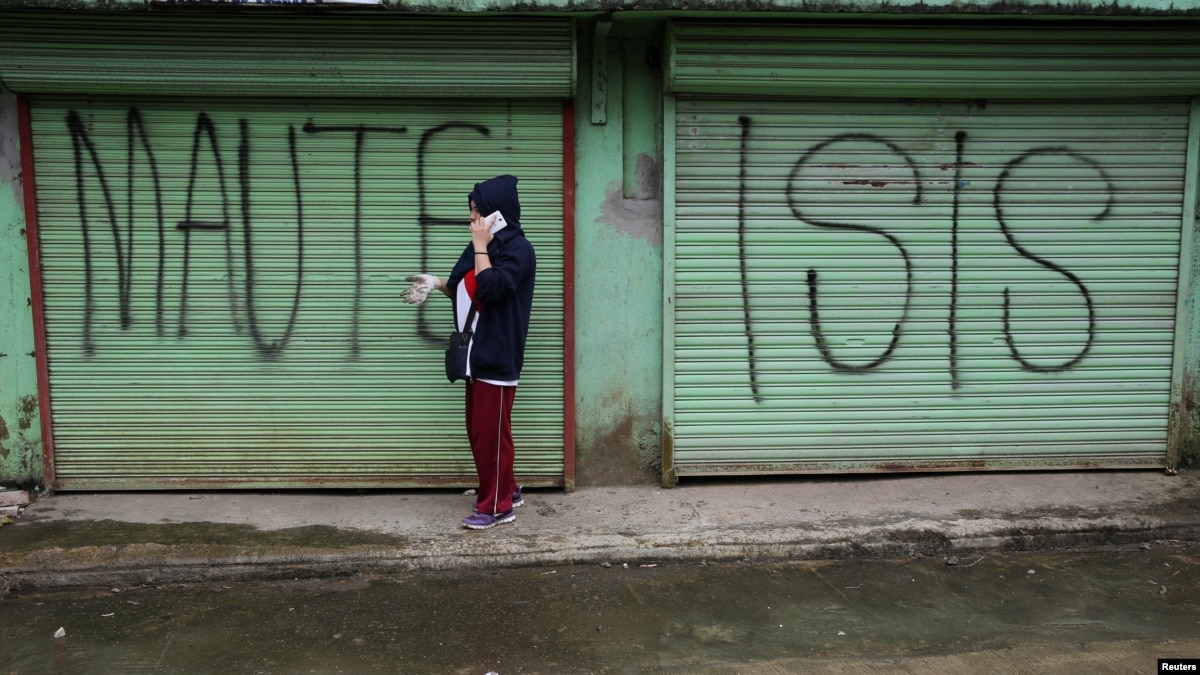
The U.S. State Department on Tuesday branded seven Islamic State groups from around the world and two of its leaders as terrorists in an effort to cut off any financial support they may have been getting from within the United States.
The top U.S. diplomatic agency blacklisted ISIS-West Africa, ISIS-Philippines and ISIS-Bangladesh, along with four other ISIS-affiliated groups — ISIS-Somalia, Jund al-Khilafah-Tunisia, ISIS-Egypt and the Maute Group. The State Department said it also has sanctioned two ISIS leaders, Mahad Moalim and Abu Musab al-Barnawi.
Nathan Sales, the State Department's counterterrorism coordinator, said in a statement that the designations "target key ISIS-affiliated groups and leaders outside its fallen caliphate in Iraq and Syria. Today’s actions are a critical step in degrading ISIS's global network and denying its affiliates the resources they need to plan and carry out terrorist attacks.”
The law under which the sanctions were imposed blocks the IS groups from conducting any business transactions linked to any properties they may have in the U.S. and prohibits Americans from doing business with them.
The State Department said the sanctions send a message globally that "these groups and individuals have committed or pose a significant risk of committing acts of terrorism. Terrorist designations expose and isolate entities and individuals, and deny them access to the U.S. financial system. Moreover, designations can assist the law enforcement activities of U.S. agencies and other governments."
It said the terrorist designations are part of the U.S. plan to defeat IS insurgents.
"This whole-of-government effort is destroying ISIS in its safe havens, denying its ability to recruit foreign terrorist fighters, stifling its financial resources, countering the false propaganda it disseminates over the internet and social media, and helping to stabilize liberated areas in Iraq and Syria so the displaced can return to their homes and begin to rebuild their lives," the State Department said.
Read More US Adds Several Islamic State Affiliates to Terror List : http://ift.tt/2F0esBBTurkey Says Czech Release of Former PYD Leader is 'Support for Terror'
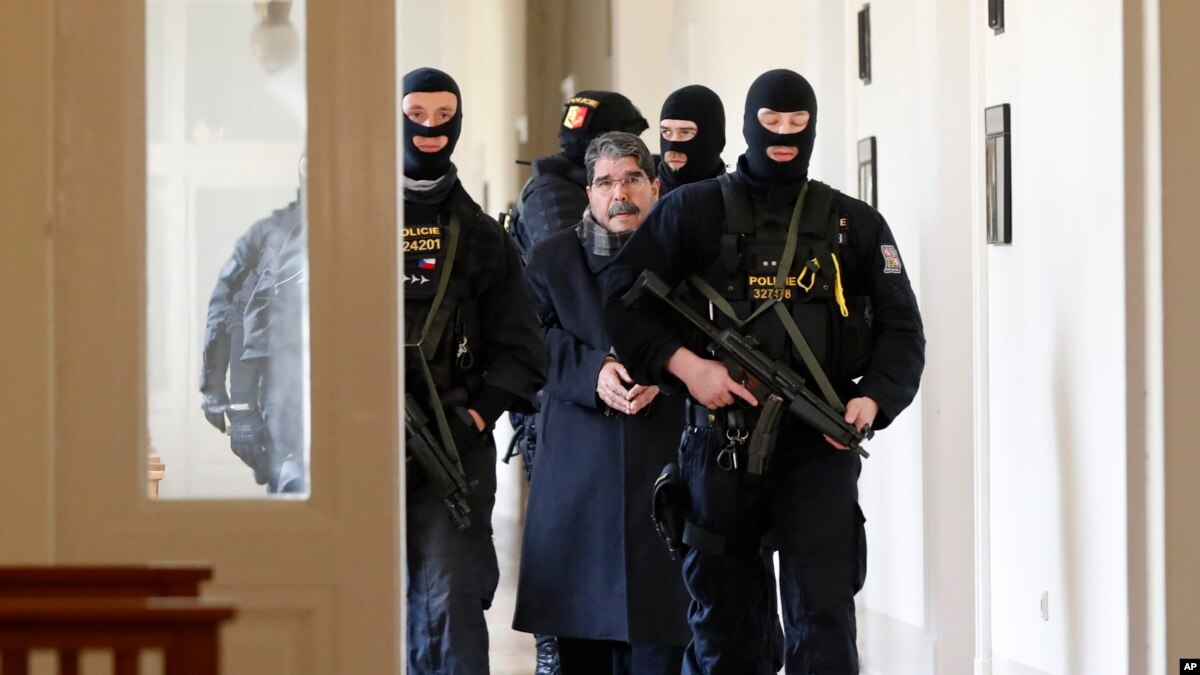
The Turkish government said Tuesday the release of the former leader of a Syrian Kurdish political party by a Czech court was "a clear support for terror."
Prague's Municipal Court decided Tuesday to release former Syrian Kurdish Democratic Union Party leader Salih Muslim despite Turkey's request for his extradition.
Turkey has accused the former PYD leader with disrupting the state and aggravated murder. He was detained in the Czech capital of Prague Saturday following a Turkish request for his arrest.
Turkey considers the PYD a terrorist group associated with outlawed Kurdish rebels fighting within the country's borders. Earlier this month, the Turkish government placed Muslim on its most-wanted list and announced a $1 million reward for his capture.
Turkish government spokesman Bekir Bozdag said the ruling violated international law and predicted it would adversely affect Turkish-Czech relations.
The PYD is the the most influential political Kurdish force in northern Syria and Muslim has maintained clout within the party, even after resigning as co-chair last year.
Turkey launched a military offensive into northern Syria in late January in an effort to push the People's Protection Units, or YPG, from the enclave of Afrin. The YPG is a U.S.-supported Syrian Kurdish militia group and the armed unit of the PYD.
Read More Turkey Says Czech Release of Former PYD Leader is 'Support for Terror' : http://ift.tt/2FBhcGBDubai Police Close Investigation Into Death of Bollywood Icon
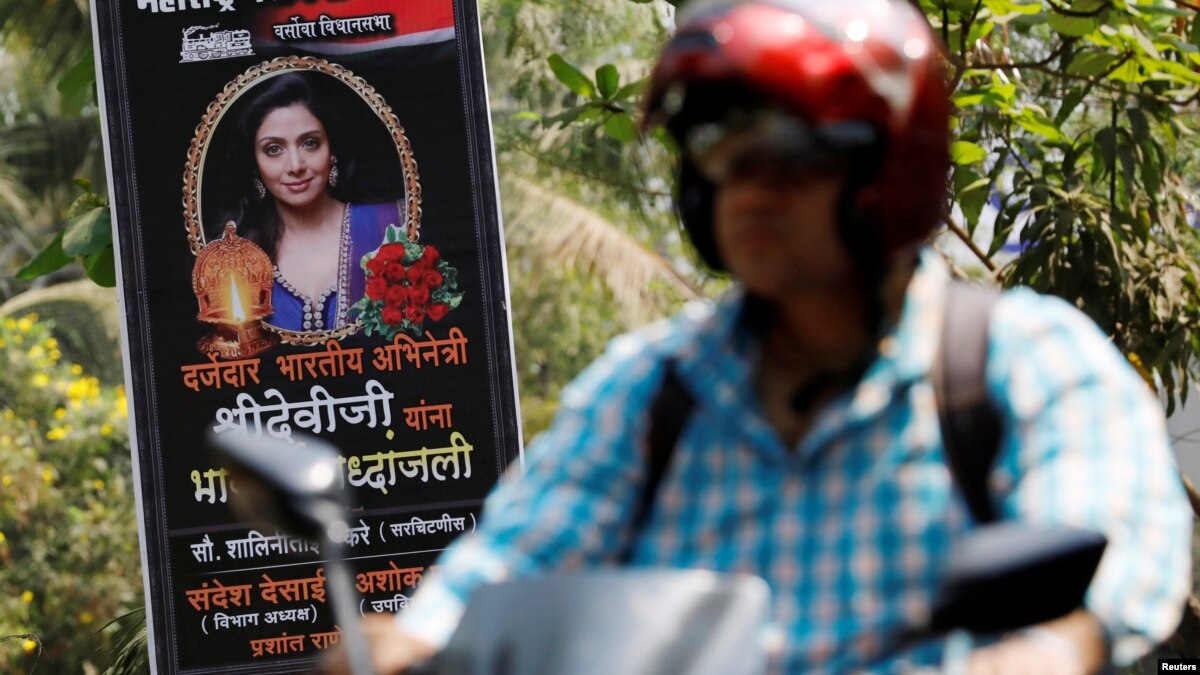
Dubai police say they have closed their investigation into the death of famed Bollywood actress Sridevi Kapoor, confirming she died from an "accidental drowning."
Authorities said the death of the 54-year old actress was due to drowning in her hotel apartment’s bathtub following a loss of consciousness. Dubai officials said they approved the release of her body to her family.
Sridevi died Saturday night in Dubai while attending her nephew's wedding. Initial reports suggested she suffered a heart attack.
Best known for her roles in Indian Hindi romantic drama films, including Chandni, Lamhe, Mr. India, and Nagina, Sridevi began her acting career at a young age and starred in over 300 films.
Many in the Bollywood film industry expressed their shock and sadness following the news of her death.
"I have no words. Condolences to everyone who loved #Sridevi . A dark day . RIP," actress Priyanka Chopra wrote on Twitter.
"Ma'am, we will always remember you with love and respect," actor Aamir Khan tweeted.
Read More Dubai Police Close Investigation Into Death of Bollywood Icon : http://ift.tt/2EWowiKBritain May Join US Strikes Against Syria if Chemical Weapon Use Proven
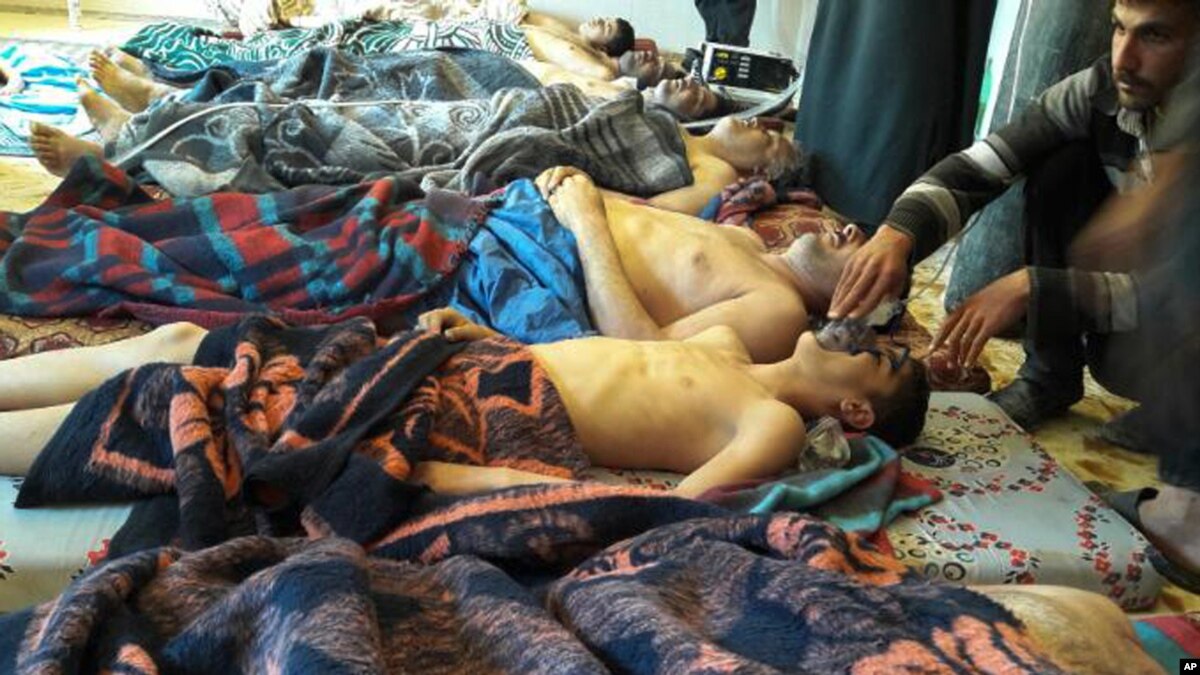
Britain would consider joining U.S. military strikes against the Syrian government if there is evidence chemical weapons are being used against civilians, Foreign Secretary Boris Johnson said on Tuesday.
Johnson said he hoped Britain and other Western nations would not stand by in the event of a chemical attack, voicing support for limited strikes if there is "incontrovertible evidence" of the Syrian's government involvement.
"If we know that it has happened, and we can demonstrate it, and if there is a proposal for action where the UK could be useful then I think we should seriously consider it," Johnson told BBC radio.
Over the past week, Syria's army and its allies have subjected the rebel-held enclave of Ghouta near Damascus to one of the heaviest bombardments of the seven-year war, killing hundreds.
Britain is part of the U.S.-led coalition involved in air attacks on Islamic State in Syria and Iraq, but the government lost a parliamentary vote on the use of force against Syrian government in 2013.
Johnson said he supported the U.S. decision to fire cruise missile at Syrian government targets last year after almost 100 people, including children, were killed in a gas attack on the opposition-held town of Khan Sheikhoun.
The United Nations accused the Syrian government of being responsible for an attack that used sarin gas.
"What we need to ask ourselves as a country and what we in the the West need to ask ourselves, is can we allow the use of chemical weapons, the use of these illegal weapons to go unreproved, unchecked, unpunished," Johnson said.
However, he warned there was little international appetite for sustained military action against the Syrian regime.
"The people listening to us and this program in eastern Ghouta cannot get the idea the West is going to intervene to change the odds dramatically in their favor," he said.
The Syrian government has repeatedly denied using chemical weapons and said it targets only armed rebels and militants.
Read More Britain May Join US Strikes Against Syria if Chemical Weapon Use Proven : http://ift.tt/2F67Ep8'Humanitarian Pause' in Fighting Goes into Effect in Syria
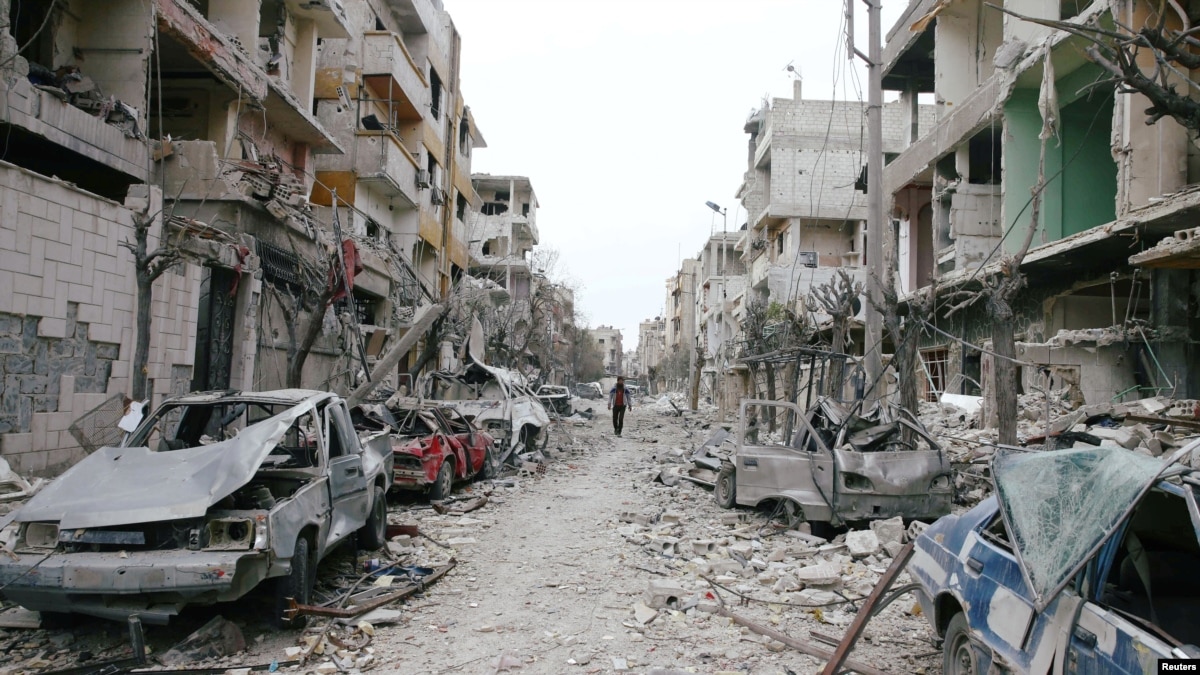
A daily "humanitarian pause" announced by Russia went into effect Tuesday in Syria with Russian President Vladimir Putin saying the five-hour window was meant to let civilians escape fighting near Damascus.
Russian Defense Minister Sergei Shoigu said the Russian stand-down would run from 9 a.m. to 2 p.m. local time.
The order comes days after the United Nations Security Council ordered a 30-day cease-fire across Syria.That plan got off to a shaky start with activists reporting continued airstrikes and fighting in the rebel-held eastern Ghouta suburb of Damascus that killed more than 30 people Monday.
In a phone call Monday, French President Emmanuel Macron told Turkey President Recep Tayyip Erdogan of his "strong concerns" about the ongoing airstrikes aimed at civilians and hospitals in eastern Ghouta.
But the French leader also called on Erdogan to end Turkey's airstrikes in Afrin in northern Syria, which it launched last month against U.S.-backed Syrian Kurdish militia it considers to be a "terrorist" group allied with Kurdish insurgents that have been fighting the government inside Turkey for three decades.On Sunday, Turkey said the U.N. truce would not affect its operations in northern Syria.
Syria's state news agency and the Britain-based Syrian Observatory for Human Rights said Turkish attacks early Monday killed five people.
U.N. Secretary-General Antonio Guterres said resolutions issued by the Security Council "are only meaningful if they are effectively implemented," while reiterating that Syrians in the besieged area of eastern Ghouta "cannot wait" for humanitarian aid.
U.N. human rights chief Zeid Ra-ad Al Hussein cast a level of doubt on the prospects for the resolution, saying it "must also be viewed against a backdrop of seven years of failure to stop the violence, seven years of unremitting and frightful mass killing."
Read More 'Humanitarian Pause' in Fighting Goes into Effect in Syria : http://ift.tt/2CLAIwQSaudi Military Leaders Replaced Amid Stalemated War in Yemen
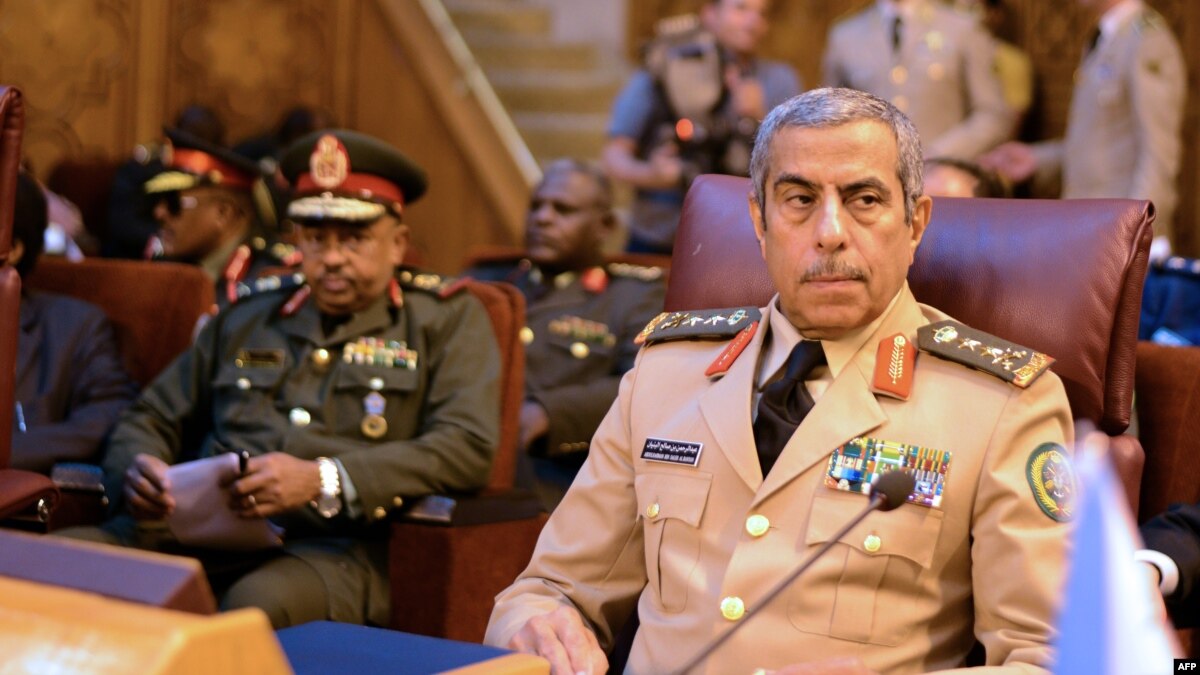
Saudi Arabia replaced its military chief of staff and other defense officials early on Tuesday morning in a shake-up apparently aimed at overhauling its Defense Ministry during the stalemated and ruinous war in Yemen.
The kingdom also announced a new female deputy minister of labor and social development as it tries to broaden the role of women in the workplace.
Saudi Arabia made the announcement in a flurry of royal decrees carried by the state-run Saudi Press Agency. As with many announcements in the ultraconservative Sunni kingdom, it was short on details.
King Salman "approved the document on developing the Ministry of Defense, including the vision and strategy of the ministry's developing program, the operational pattern targeting its development, the organizational structure, governance and human resources requirements," one statement said.
That restructuring was part of a "multi-year effort," Prince Faisal bin Farhan, a senior adviser at the Saudi Embassy in Washington, wrote on Twitter.
Prominent among the personnel changes was the firing of military chief of staff Gen. Abdulrahman bin Saleh al-Bunyan. Another announcement said the general would become a consultant to the royal court.
Al-Bunyan was replaced by Gen. Fayyadh bin Hamid al-Rwaili, who once had been the commander of the Royal Saudi Air Force, among the nation's premier military forces.
Also appointed as an assistant defense minister was Khaled bin Hussain al-Biyari, the CEO of the publicly traded mobile phone and internet service provider Saudi Telecom Co.
The decisions come as the Saudi-led coalition, chiefly backed by the United Arab Emirates, remains mired in a stalemate in Yemen, the Arab world's poorest country. Over 10,000 people have been killed in the war in which Saudi-led forces back Yemen's internationally recognized government against Shiite rebels and their allies who are holding the Yemeni capital, Sanaa, and much of the north of the country.
The kingdom faces wide international criticism for its airstrikes killing civilians and striking markets, hospitals and other civilian targets. Aid groups also blame a Saudi-led blockade of Yemen for pushing the country to the brink of famine.
Crown Prince Mohammed bin Salman, the heir to the throne after his father King Salman, is the Saudi defense minister and architect of the Yemen war. While the crown prince has burnished his reputation abroad with promises of business-friendly reforms and other pledges, his role in Yemen haunts that carefully considered public personae.
But the overhaul in the Saudi defense forces should not be seen only as a reaction to the Yemen war, said Becca Wasser, a Washington-based RAND Corp. analyst specializing in Gulf security who has traveled to Saudi Arabia in the past.
The war in Yemen functions "to push these reforms forward, but it's not the driver," Wasser told The Associated Press.
In general, Wasser said such an overhaul would include improving training and recruitment of troops, allocating better resources and changing a military's leadership to one willing to hear new ideas and make changes.
Also noticeable was an effort to include a "careful balancing" of appointments of others in the Al Saud royal family, said Kristian Coates Ulrichsen, a research fellow at the James A. Baker III Institute for Public Policy at Rice University
"It seems the Saudi shake-up is more about moving forward with Mohammed bin Salman's attempt to put in place a new generation of leadership in tune with his vision to transform the structure of Saudi decision making," Ulrichsen told the AP.
The appointment of a woman in a ministerial position, Tamadhir bint Yosif al-Rammah as deputy minister of labor and social development, comes as the kingdom prepares to allow women to drive this year and pushes to have more women in Saudi workplaces.
Also appointed was Prince Turki bin Talal Al Saud as deputy governor of the Asir region. The prince's brother is billionaire Prince Alwaleed bin Talal, who recently was detained for months at the Ritz-Carlton in Riyadh as part of what the government described as an anti-corruption campaign.
As with the anti-corruption purge, Wasser said the military overhaul also fit into the consolidation of power by Crown Prince Mohammed.
"Reform is a tricky thing to do. To create change in a larger bureaucratic structure like a military is difficult. To create change in Saudi Arabia ... is incredibly difficult," she said. "It is not going to be easy and change is not going to happen tomorrow. This is much more of a long-term endeavor."
Read More Saudi Military Leaders Replaced Amid Stalemated War in Yemen : http://ift.tt/2ETr94UMonday, February 26, 2018
US Opens Tough Saudi Nuclear Talks, in Shadow of Iran Deal
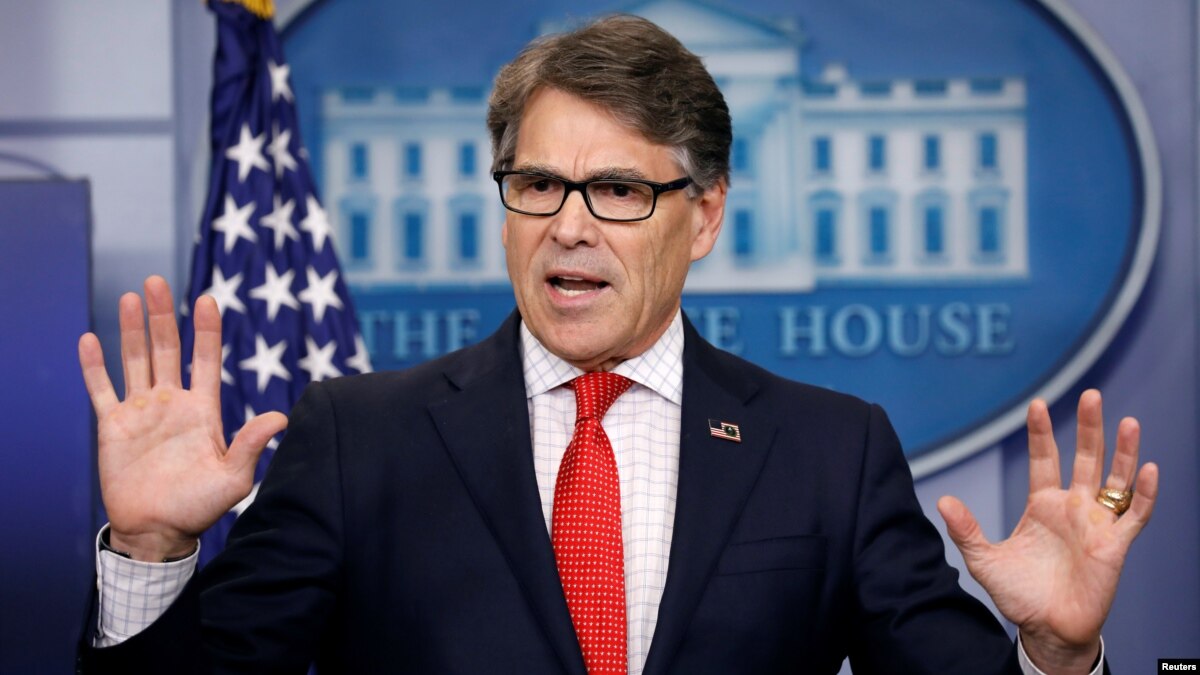
The Trump administration is opening talks with Saudi Arabia on a potentially lucrative atomic energy agreement that's inextricably linked to an Obama-era nuclear deal with Iran. At stake: Billions of dollars in contracts for U.S. companies and bigger questions about America's ability to keep friend and foe alike from reaching nuclear weapons capability.
Energy Secretary Rick Perry will lead an inter-agency U.S. delegation to talks with the Saudis in London on Friday, two administration officials and three outside advisers said. The meeting comes as the Arab powerhouse explores a civilian nuclear energy program, possibly without restrictions on uranium enrichment and reprocessing that would be required under a U.S. cooperation deal.
But there's a catch: The Saudis have indicated they might accept such curbs if a separate nuclear deal with its arch-foe Iran is tightened, according to the officials, who spoke on condition of anonymity because they weren't authorized to speak publicly on the matter.
The separate negotiations, over Saudi and Iranian nuclear capabilities, put American officials in the middle of the great balance-of-power of the modern Middle East. The Saudis are loath to sign away their ability to move closer to bomb-making capability while Iran is bound by a 2015 nuclear accord that will become increasingly lenient next decade.
When President Barack Obama blessed the nuclear compromise with Tehran, his officials insisted they weren't weakening nonproliferation standards for everyone else. But that difficult task has fallen to President Donald Trump. And the Saudis, among his closest allies, are now asking a simple question: If Iran can enrich, why can't we?
"Our objective is we want to have the same rights as other countries," Saudi Foreign Minister Adel al-Jubeir said this month at a security conference in Munich.
At issue on Perry's trip is what's known as a "123 agreement." Without one, U.S. nuclear energy firms like Westinghouse would lose out on business opportunities with the Saudis. American officials and outside advisers said the Saudis have dangled the prospect of such contracts if new restrictions are imposed on Iran's nuclear activity.
Trump shares many of the Saudi concerns over the Iran deal, which he's called the worst ever and repeatedly threatened to walk away from. In January, he vowed he wouldn't issue more waivers of U.S. sanctions — an Iran deal requirement — unless it's amended to prevent Tehran from gradually resuming a variety of currently banned nuclear activities.
Such talks, primarily with Europe, are thus taking on added importance ahead of a mid-May deadline for more Trump waivers.
Trump has identified four specific problems that must be addressed, including two not covered by the deal: Expiration dates on some nuclear restrictions, inspection rules for Iranian military sites, ballistic missile work and Iranian activity in countries around the Middle East — where it has helped Syria's government in a civil war and aided Yemeni rebels in another.
A team led by the State Department's policy planning chief Brian Hook has met twice recently with European officials, in London last month and Paris last week. It's seeking Europe's commitment to re-impose sanctions with the U.S. if Iran violates a new set of nuclear restrictions. A third meeting is set for Berlin in March.
British, French and German official have been receptive to the ideas, according to the U.S. officials and advisers. The focus is on a supplemental agreement addressing Trump's concerns without unraveling the original Iran deal, padded by European promises to consider tougher responses and sanctions for Iranian missile activity, support for Hezbollah and other non-nuclear matters.
As it is now, Iran can use thousands of centrifuges and enrich uranium, albeit to levels far short of weapons-grade material. Under 123 agreements, foreign countries can buy U.S. nuclear technology and the nuclear know-how that comes with it if they agree not to enrich uranium and reprocess plutonium. Both can be used for nuclear weapons fuel.
The irony that an agreement designed to prevent Iran from obtaining a nuclear weapon lets it do more than its rivals isn't lost on Saudi Arabia — or other countries that have voluntarily limited the scope of their programs. At least 23 countries have such agreements with Washington, including South Korea, South Africa and Vietnam.
The United Arab Emirates entered into a 123 agreement with the U.S. in 2009, one of the strictest ever reached. When the Iran deal was reached, the Emirati ambassador to Washington told Congress his country "no longer felt bound" by provisions preventing the UAE from enriching.
While Trump has aggressively courted the Saudi government, seeing the Sunni-led powerhouse as a bulwark against Shiite Iran, there is near universal agreement among national security experts that allowing any country to introduce nuclear weapons in the volatile Middle East would be a terrible idea. Currently, the only Mideast country believed to possess a nuclear arsenal is Israel.
But there are also concerns a U.S.-Saudi disagreement will lead the kingdom to turn to U.S. rivals Russia and China, whose state-owned nuclear companies are competing to build reactors in Saudi Arabia. That would give the United States even less insight into Saudi Arabia's nuclear activities in the future.
The overlapping issues have Iran deal opponents insisting tougher rules on Iran is the easiest solution.
"A fix puts the administration in a much better position with the Saudis," said Mark Dubowitz of the Foundation for the Defense of Democracies. "It's a critical step in demanding adherence to the `gold standard' as opposed to the Iran standard."
Read More US Opens Tough Saudi Nuclear Talks, in Shadow of Iran Deal : http://ift.tt/2HNFnlRSaudi Reshuffles Top Military Posts, Adds a Female Deputy Minister
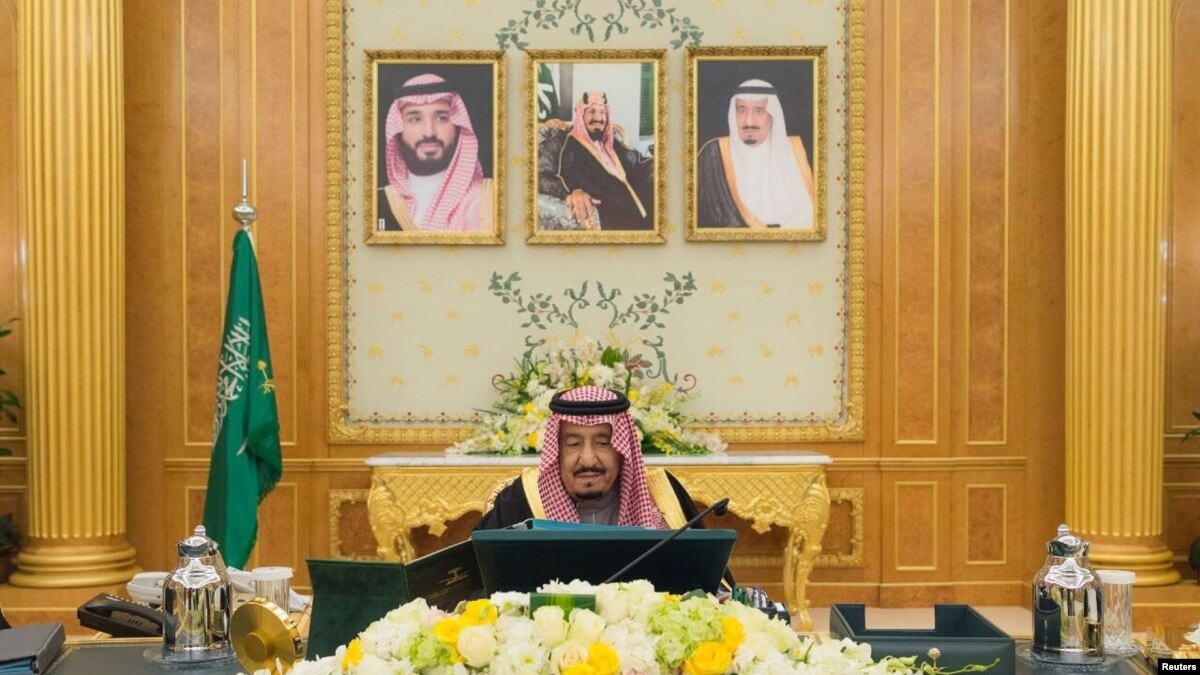
Saudi Arabia's King Salman reshuffled some of the kingdom's top military officers and several deputy ministers on Monday in a broad shakeup seen as elevating younger officials in key economic and security areas.
The chief of staff was retired and replaced by First Lieutenant General Fayyad bin Hamed al-Ruwayli while new chiefs were appointed to the country's air defense and land forces, according to royal decrees published by state media.
Several new deputies in economic and security-related ministries as well as a handful of new city mayors were appointed, including Tamadur bint Youssef al-Ramah as deputy labor minister, a rare senior post for a woman in the deeply conservative kingdom.
The decrees also included the appointment of three deputy governors from among the descendants of Princes Ahmed, Talal and Muqrin — brothers of King Salman, some of whom may have felt sidelined by recent changes since his accession to the throne in 2015.
One of them, new deputy governor of Asir province, Prince Turki bin Talal, is the brother of billionaire Prince Alwaleed bin Talal, who was detained in the government's anti-corruption campaign and only released last month.
The way Saudi Arabia is run has seen major changes under 32-year-old Crown Prince Mohammed bin Salman, who rocketed to the heights of power from near obscurity after his father became king following the death of King Abdullah in 2015 and is pushing big economic and social reforms.
He is popular with many Saudi youths, who make up the vast majority of the population, but has irked some with his unconventional approach, including a palace coup last summer in which he pushed out his cousin to become heir to the throne.
Saudi analyst Ahmed al-Towayan, speaking on Saudi state television, said the new appointments were "pumping young blood" into local government while elevating young commanders into top military posts.
Read More Saudi Reshuffles Top Military Posts, Adds a Female Deputy Minister : http://ift.tt/2sUxJ5SStatement: New US Sanctions Aim to Block Libyan Oil Smuggling
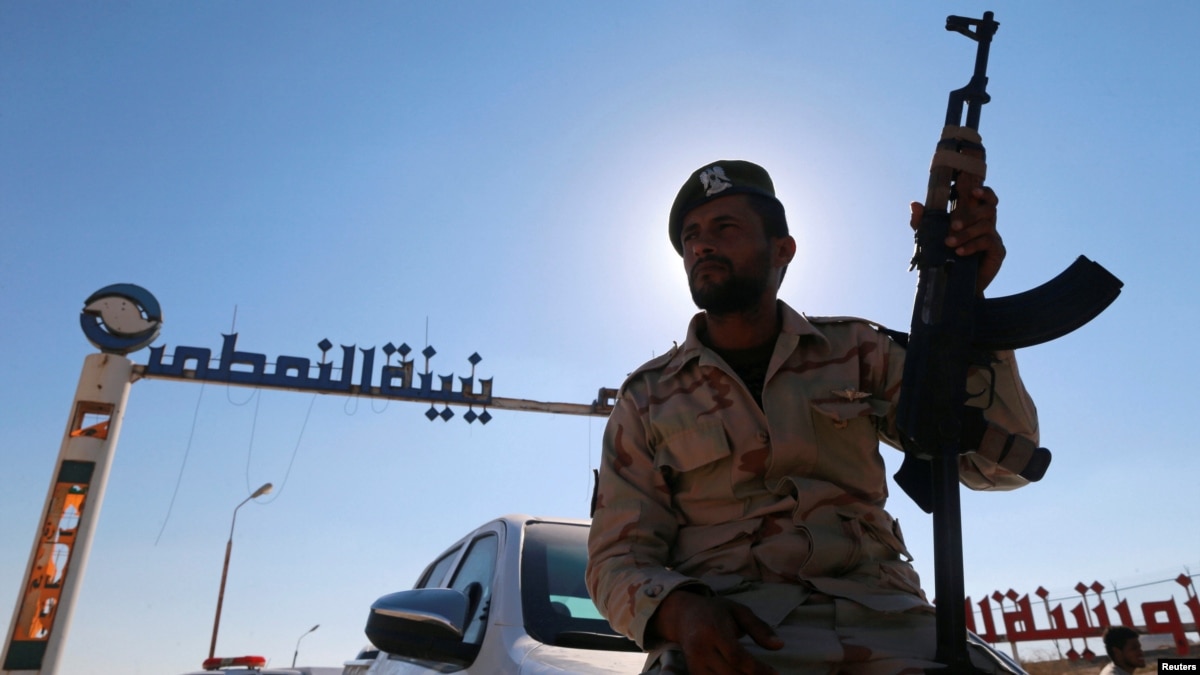
The United States has issued a new round of sanctions targeting oil smugglers in Libya aimed at blocking exploitation of natural resources that is driving instability, the U.S. Treasury Department said Monday.
In a statement, Treasury's Office of Foreign Assets Control (OFAC) said it was sanctioning six people, 24 companies and seven vessels in a move that prohibits Americans from engaging with those targeted and freezes any related property under U.S. jurisdictions.
The sanctions target people from Libya, Malta and Egypt, according to the statement. Issued under the authority of a 2016 executive order by then U.S. President Barack Obama, companies based in Italy, Libya and Malta are also targets, the statement said.
The United Nations Security Council has condemned illicit exploitation of oil from Libya, which has been mired in conflict since an uprising in 2011 that overthrew Moammar Gadhafi, who led the country for more than 40 years.
"Oil smuggling undermines Libya's sovereignty, fuels the black market and contributes to further instability in the region while robbing the population of resources that are rightly theirs," OFAC's statement said.
Libya's oil production has steadied but is still well below the 1.6 million barrels per day it was pumping before the insurgency seven years ago and is suffering from theft, abduction and other security threats.
Production from at least one Libyan oil field has also been disrupted by a dispute over security guards' pay.
Read More Statement: New US Sanctions Aim to Block Libyan Oil Smuggling : http://ift.tt/2ozxdopWHO: Yemen's Cholera Epidemic Likely to Intensify
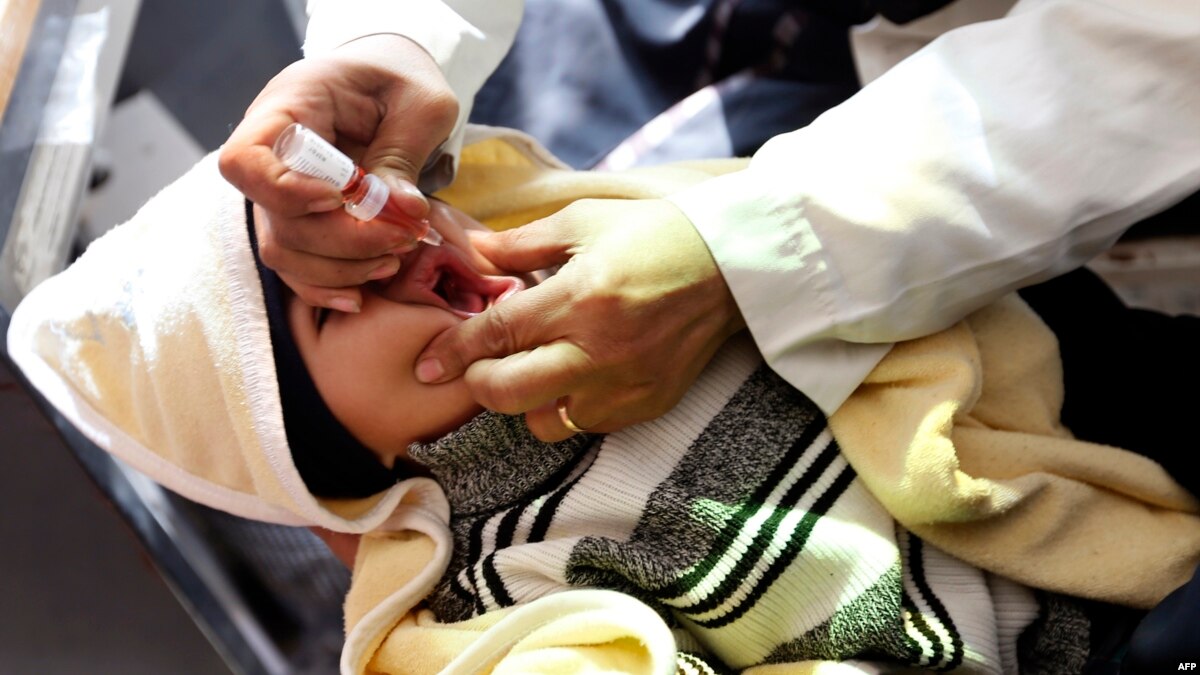
The World Health Organization warned on Monday that a cholera epidemic in Yemen that killed more than 2,000 people could flare up again in the rainy season.
WHO Deputy Director General for Emergency Preparedness and Response Peter Salama said the number of cholera infections had been in decline in Yemen over the past 20 weeks after it hit the 1 million mark of suspected cases.
"However, the real problem is we're entering another phase of rainy seasons," Salama told Reuters on the sidelines of an international aid conference in Riyadh.
"Usually cholera cases increase corresponding to those rainy seasons. So we expect one surge in April, and another potential surge in August."
A proxy war between Iran-aligned Houthis and the internationally recognized government of President Abd-Rabbu Mansour Hadi, which is backed by a Saudi-led alliance, has killed more than 10,000 people since 2015, displaced more than 2 million and destroyed much of the country's infrastructure, including the health system.
Yemen relies heavily on food imports and is on the brink of famine. The United Nations says more than 22 million of Yemen's 25 million population need humanitarian assistance, including 11.3 million who are in acute need.
Salama said the country had also had an outbreak of diphtheria, a vaccine-preventable disease that usually affects children and which has largely been eliminated in developed countries.
Both cholera and diphtheria outbreaks are a product of the damage to the health system in the country, he said, adding that less than half of Yemen's health facilities are fully functioning.
"We're very concerned we're going to go from a failing health system to a failed one that's going to spawn more infectious diseases and more suffering," Salama said.
However, Salama said that despite more than 2,000 deaths from cholera, the fatality rate has been low, at around 0.2 to 0.3 percent.
The WHO has approval from the government for vaccination campaigns and is working on ensuring all parties to the conflict implement the plan, he added.
Read More WHO: Yemen's Cholera Epidemic Likely to Intensify : http://ift.tt/2sZS2yzSaudi Envoy Invites Lebanon’s PM Hariri to Kingdom
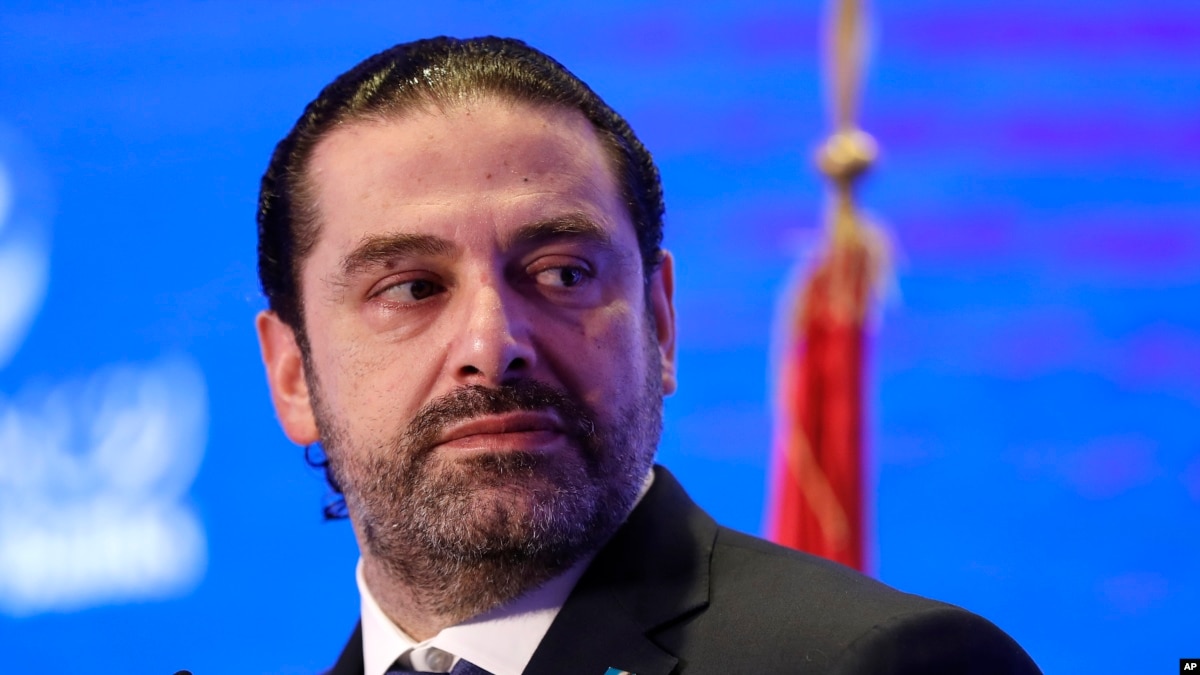
Lebanon’s Prime Minister Saad al-Hariri has been invited to Saudi Arabia, his office said on Monday, setting the stage for his first visit since he abruptly resigned there in November.
Hariri received the invitation from Saudi envoy Nizar al-Aloula on Monday and would go as soon as possible, the press office said without elaborating.
The premier last travelled to the kingdom on Nov. 3 and resigned in a televised statement a day later. Lebanese officials accused Saudi Arabia of forcing Hariri, its long-time ally, to quit and putting him under effective house arrest until France intervened. Riyadh has denied this.
He returned home weeks later and withdrew his resignation, drawing a line under the crisis that had raised fears for Lebanon’s economic and political stability.
The crisis thrust Lebanon onto the frontline of a Middle East contest for power pitting a Saudi-led bloc against Iran and its allies, including the Lebanese Shi’ite Hezbollah movement.
“Saudi Arabia’s main goal is for Lebanon to be its own master, and it is keen on Lebanon’s full independence,” Hariri said after meeting Saudi envoy Nizar al-Aloula in Beirut on Monday.
After his return, Hariri's coalition government, which includes Hezbollah, reaffirmed a state policy of staying out of conflicts in the Arab world. Saudi Arabia accuses the heavily armed Hezbollah of waging war across the Middle East as agents of Iran.
Lebanon declared its policy of “dissociation” in 2012 to keep the deeply divided state out of regional conflicts such as the war in neighbouring Syria. Still, Hezbollah has sent thousands of its fighters across the border to support Syrian President Bashar al-Assad.
Read More Saudi Envoy Invites Lebanon’s PM Hariri to Kingdom : http://ift.tt/2HKEKcNUN Security Council Renews Yemen Sanctions
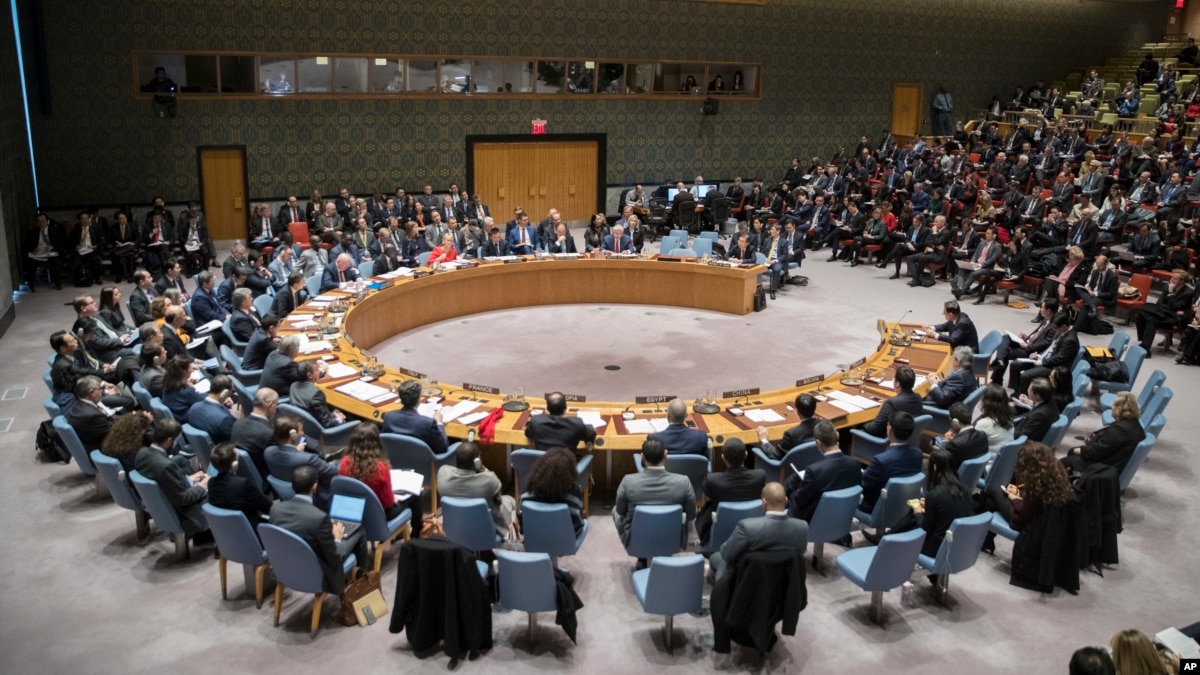
Russia has blocked a U.N. Security Council resolution that would have called out Iran for violating an arms embargo against Yemen’s Houthi rebels.
During a vote Monday, Russia wielded its veto against the British-drafted text. Bolivia joined Russia in voting against the measure, and China and Kazakhstan abstained.
The council instead unanimously adopted a Russian-written resolution that called for a simple one-year extension of the sanctions regime against Yemen and a renewal of the work of the panel of experts.
The Americans, British and French had led a widely supported effort in the council to hold Iran accountable for alleged weapons transfers to the Houthis, which have resulted in attacks against targets in neighboring Saudi Arabia.
“The wording advanced in the British draft is liable to have dangerous, destabilizing ramifications,” Russia’s ambassador Vassily Nebenzia told council members. “This will inevitably escalate regional tensions and lead to conflict amongst key regional players,” he warned.
“Russia’s veto today serves only to protect Iran’s efforts to destabilize the region and spread its malign influence,” U.S. envoy Kelley Currie said of the defeat of the British text.
The independent panel of experts who monitor the implementation of sanctions concluded in its most recent report that Iran had failed to prevent weapons transfers to the Houthis. But it also found that the Saudi-led coalition had obstructed delivery of humanitarian aid with its air and sea blockade, and that some of its airstrikes violated international humanitarian law.
The war in Yemen enters its fourth year in March. The council will hear an update on Tuesday about the resulting humanitarian crisis.
More than 22 million Yemenis require humanitarian assistance, including over 8 million who are a step away from famine.
The United Nations has called repeatedly for the parties to stop fighting and give safe and unrestricted access to aid workers. Efforts to find a political solution are stalled.
Read More UN Security Council Renews Yemen Sanctions : http://ift.tt/2CnPfD8Afghan Taliban Renew Call for Dialogue With US to End War
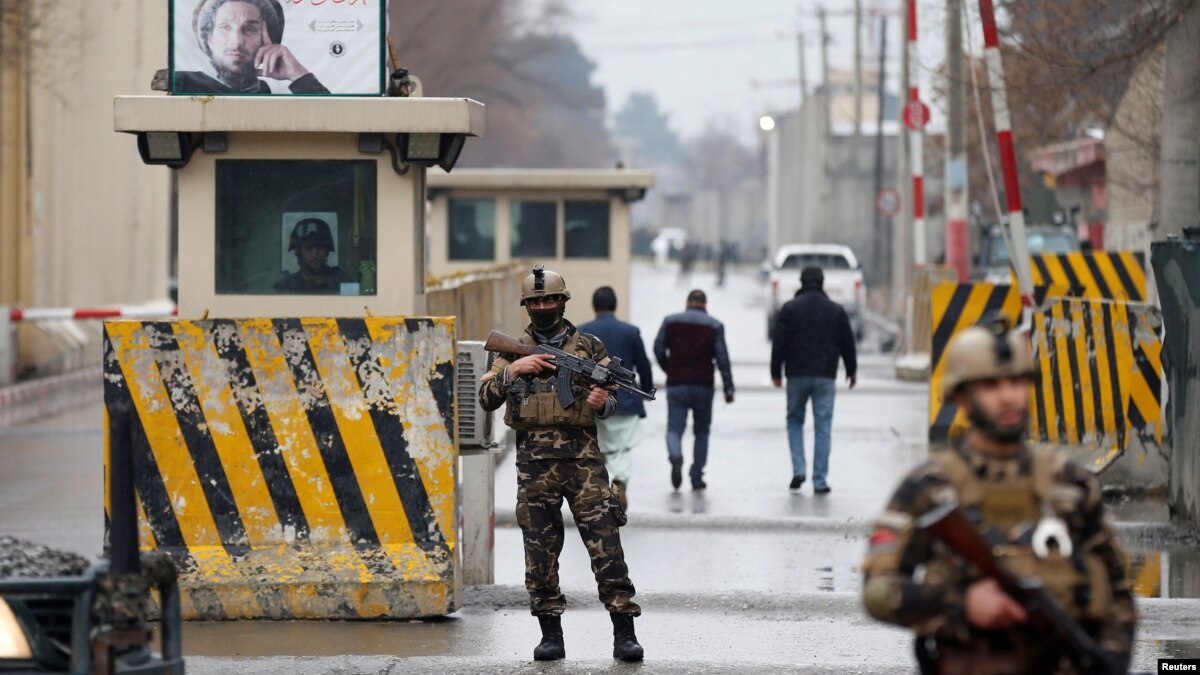
The Taliban urged the United States on Monday to begin talks to end almost 17 years of war in Afghanistan, adding to a series of signals that suggest a greater willingness to explore options for dialogue.
In its statement, two days before the start of a meeting of regional leaders in Kabul to discuss ways of ending the war, the movement said it wanted a peaceful resolution.
“The Political Office of the Islamic Emirate of Afghanistan calls on American officials to talk directly to the Political Office of Islamic Emirate regarding a peaceful solution to the Afghan quandary,” it said.
“It would help in finding a solution if America accepts the legitimate demands of the Afghan people and forward its own concerns and requests for discussion to the Islamic Emirate through a peaceful channel,” it said.
The statement referred to reported comments by Alice Wells, the Principal Deputy Assistant Secretary in the U.S. State Department's Bureau of South and Central Asian Affairs, that the “door is open” for talks with the Taliban.
Taliban statement
Less than two weeks ago, the Taliban issued a statement saying they preferred to “solve the Afghan issue through peaceful dialogue.”
The United States last year stepped up its military assistance to Afghanistan, notably through a sharp increase in airstrikes, with the aim of breaking a stalemate with the insurgents and forcing them to the negotiating table.
While the U.S. military says the strategy has hit the Taliban hard, they still control or contest much of the country.
They also claimed responsibility for two major attacks in Kabul last month that killed or wounded hundreds of civilians and shook public confidence in the Western-backed government of President Ashraf Ghani.
U.S. officials say the only option for an end to the war is a negotiated settlement between the Taliban and the Afghan government.
In an interview this week with Voice of America, Wells said the next meeting in the so-called “Kabul process,” beginning on Wednesday, would aim to make clear that there was the potential for dialogue.
Peaceful solution sought
“I’m confident that the conference is going to push forward regional efforts to enforce what has been our most important message to the Taliban — that the door is open, there is a path to peace and stability.” she said.
But while all sides say they want a peaceful solution and there have been behind-the-scenes contacts, the only major peace talks broke down almost immediately after they started in 2015.
The Taliban, fighting to restore their version of strict Islamic law since they were driven from power in Kabul by a U.S.-led campaign in 2001, have in the past insisted that international forces must leave Afghanistan as a precondition for talks.
Read More Afghan Taliban Renew Call for Dialogue With US to End War : http://ift.tt/2osqygoEU, Arab League Affirm Jerusalem Must Be Joint Capital
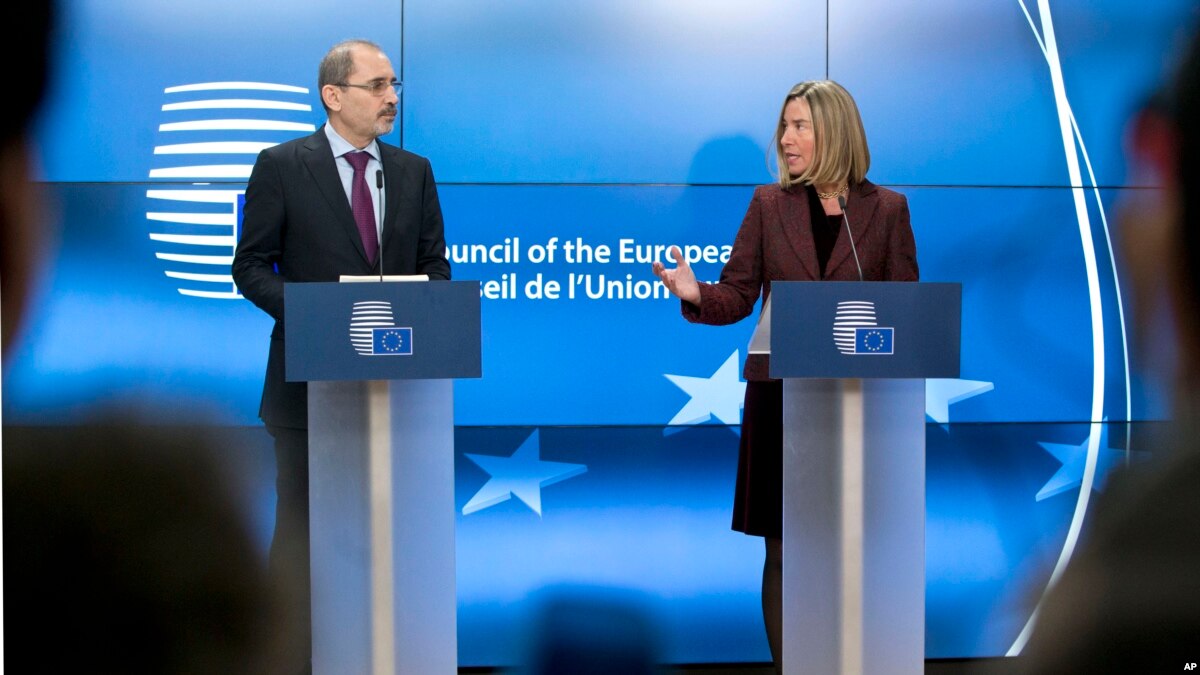
European Union and Arab League countries insist that Jerusalem must be the joint capital of Israel and a future Palestinian state, as the U.S. prepares to move its embassy there in a step angering the Arab world.
Speaking after talks Monday between EU and Arab League foreign ministers, EU foreign policy chief Federica Mogherini said that the "special status and character of the city must be preserved."
She said the two blocs also "see eye to eye" that there can only be a two-state solution to the conflict, with Israel and the Palestinians living side by side in peace.
The talks come as Washington prepares to move its embassy from Tel Aviv to a scaled-down, temporary facility that will open in Jerusalem in May.
Read More EU, Arab League Affirm Jerusalem Must Be Joint Capital : http://ift.tt/2FzQVbMTunisia, Spain Vow Cooperation on Security, Women's Rights
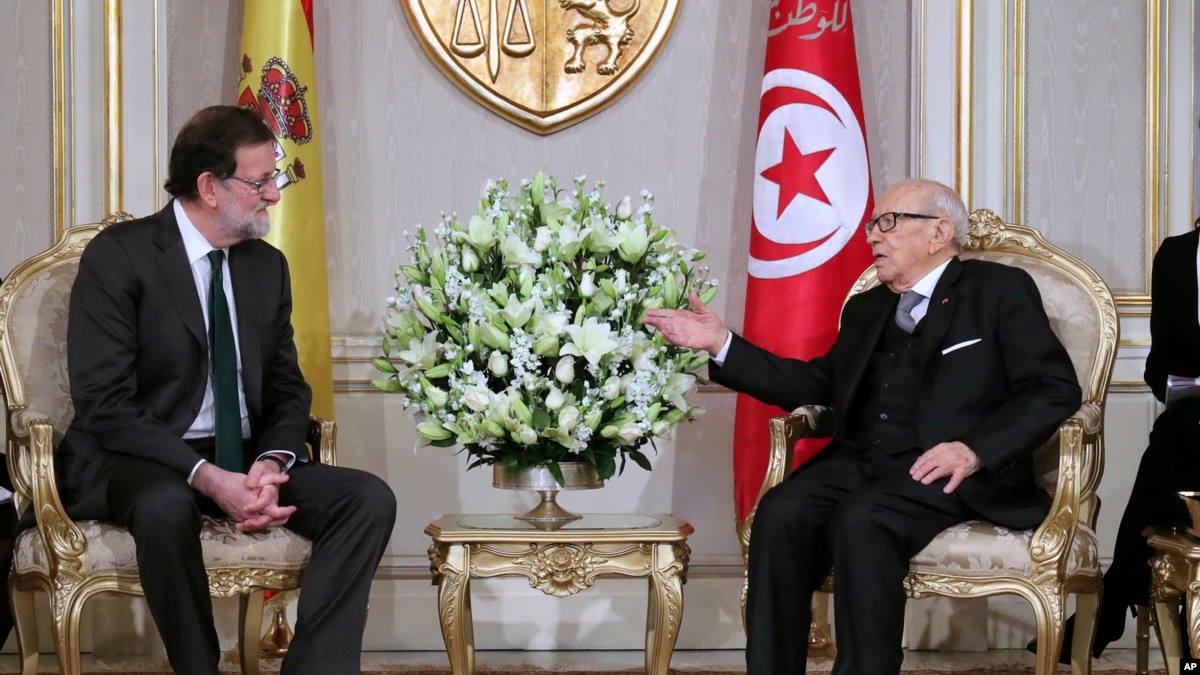
Spain and Tunisia are reviving ties after a decade-long freeze, pledging notably to work together on security and women's rights.
Spanish Prime Minister Mariano Rajoy and Tunisian counterpart Youssef Chahed signed eight accords Monday in Tunis.
Rajoy announced a 25-million-euro ($30.8 million) credit line for small and medium businesses in Tunisia, and urged Spanish businesses to invest in Tunisia. Rajoy pledged cooperation in fighting organized crime and support for Tunisia's democracy.
Chahed stressed their joint determination to "fight the plagues of terrorism and extremism, in reinforcing coordination in the security and military domains" and in training programs.
Relations were on hold for nearly 10 years as Spain faced an economic crisis and Tunisia grappled with a revolution and rocky transition to democracy.
Read More Tunisia, Spain Vow Cooperation on Security, Women's Rights : http://ift.tt/2GLWKlvUN Chief Expects Implementation of Syria Cease-Fire
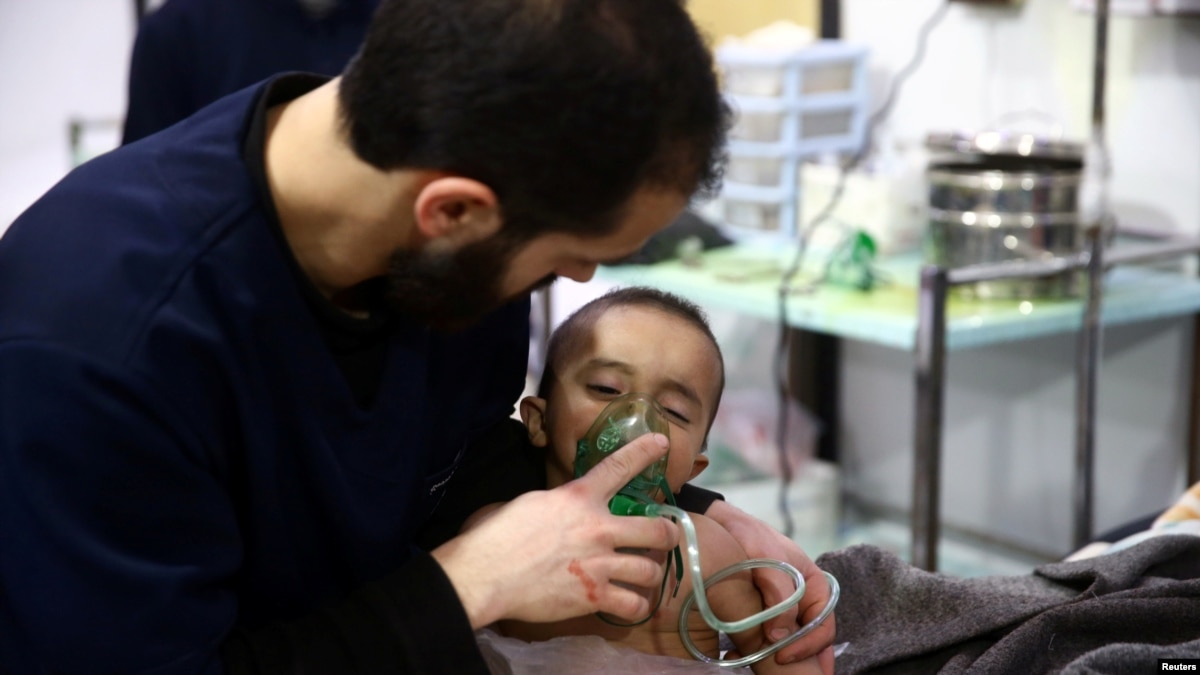
U.N. Secretary-General Antonio Guterres said Monday that resolutions issued by the Security Council "are only meaningful if they are effectively implemented," while reiterating that Syrians in the besieged area of eastern Ghouta "cannot wait" for humanitarian aid.
The council on Saturday demanded a nationwide cease-fire in Syria for 30 days, while calling for a lifting of sieges and allowing access for medical and rescue workers.
"I expect the resolution to be immediately implemented and sustained, particularly to ensure the immediate, safe, unimpeded and sustained delivery of humanitarian aid and services, the evacuation of the critically sick and the wounded, and the alleviation of the suffering of the Syrian people," Guterres said.
But violence has not halted, with the U.N. and a Syrian war monitor reporting fresh airstrikes Monday in eastern Ghouta, a rebel-held suburb of Damascus where more than 500 people have been killed during the past week.
WATCH: New Fighting Breaks Out in Syria, Despite UN Cease-fire
"We insist on its full implementation without delay, however we have every reason to remain cautious as airstrikes on eastern Ghouta continue this morning," U.N. human rights chief Zeid Ra-ad Al Hussein said.
Zeid also cast a level of doubt on the prospects for the resolution, saying it "must also be viewed against a backdrop of seven years of failure to stop the violence, seven years of unremitting and frightful mass killing."
Various efforts to bring an end to the war in Syria, which began in 2011 as peaceful protests against President Bashar al-Assad before turning into a multi-party conflict, have been largely unsuccessful, including several attempts at U.N.-brokered peace talks.
Throughout the conflict, there have also been several proposals at the Security Council to hold human rights violators accountable, but those resolutions have been blocked by Russia and China utilizing their veto power.
The five permanent members of the council, which also include Britain, France and the United States, can veto any resolution.
During his opening statement Monday at the start of the U.N. Human Rights Council's annual session, Zeid spoke generally about a failure of the council to address suffering in the world, saying the permanent members are responsible "for the continuation of so much pain."He specifically faulted China, Russia and the United States for their use of vetoes on a variety of issues.
"So long as the veto is used by them to block any unity of action when it is needed the most, when it could reduce the extreme suffering of innocent people, then it is they the permanent members who must answer before the victims," Zeid said.
European Union foreign policy chief Federica Mogherini also expressed her concern and that of European foreign ministers about an increase in violence across Syria, "from different actors, obviously first and foremost by the regime and its supporters."
Read More UN Chief Expects Implementation of Syria Cease-Fire : http://ift.tt/2sV48cxSunday, February 25, 2018
Christianity's 'Holiest Site' Closed in Protest
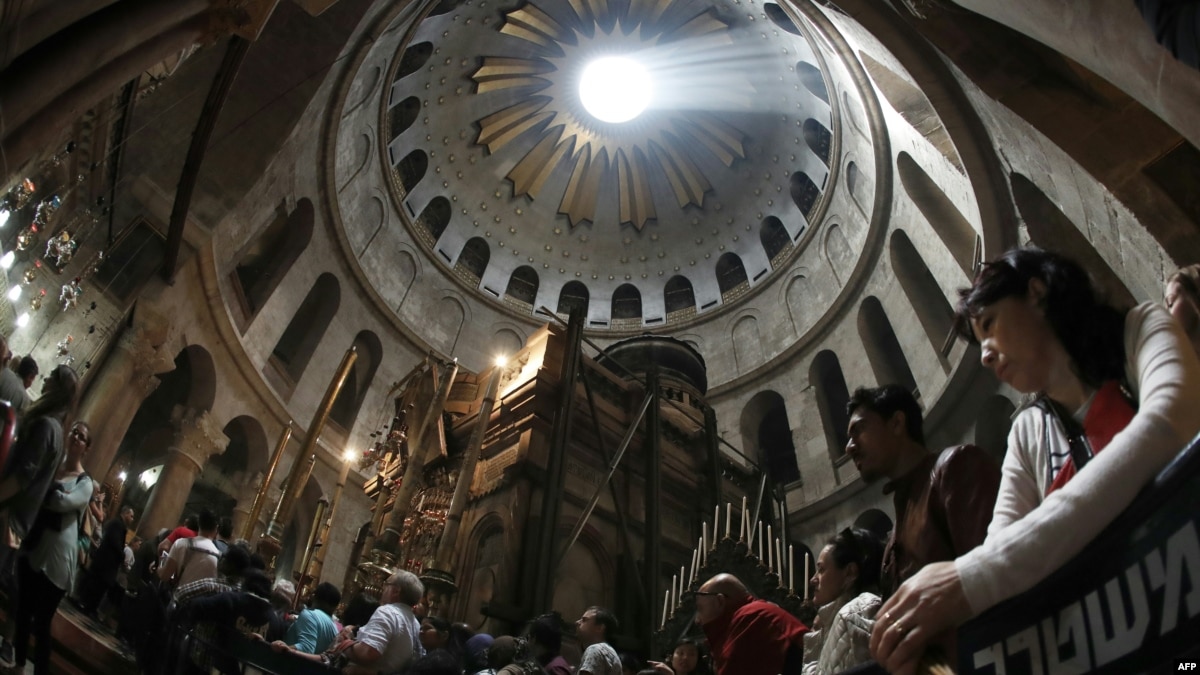
Christian leaders in Jerusalem have closed the doors to the Church of the Holy Sepulchre, considered the holiest site in Christianity, to protest a new Israeli tax policy and a proposed property law.
The Greek Orthodox, Roman Catholic, and the Armenian Apostolic leaders accused Israel of a "systematic and unprecedented attack against Christians in the Holy Land".
They said the site, that daily draws thousands to the place where Christians believe Jesus was crucified, buried and later resurrected, will remain closed until further notice.
The Christians are angry that the Jerusalem municipality plans to tax their various assets around the city.
Jerusalem Mayor Nir Barkat has said the city is owed $186 million in uncollected taxes on Church assets. He said all churches were exempt from the tax changes, and that only Church-owned "hotels, halls and businesses" would be affected.
The protest was also aimed at a bill that would allow the state to expropriate land in Jerusalem sold by churches to private real estate firms in recent years. Israeli lawmakers say the bill is meant to protect homeowners against the possibility that private companies will not extend their leases of land on which their houses or apartments stand.
The churches, which are major landowners in the holy city, say it violates a long standing status quo and that it will make make it harder for them to find buyers for church-owned land - sales that help to cover operating costs of their religious institutions.
At a news conference in front of the church's bolted wooden doors the church leaders said the bill "reminds us all of laws of a similar nature which were enacted against the Jews during a dark period in Europe".
New Fighting Erupts Near Damascus Despite UN Cease-fire Demand
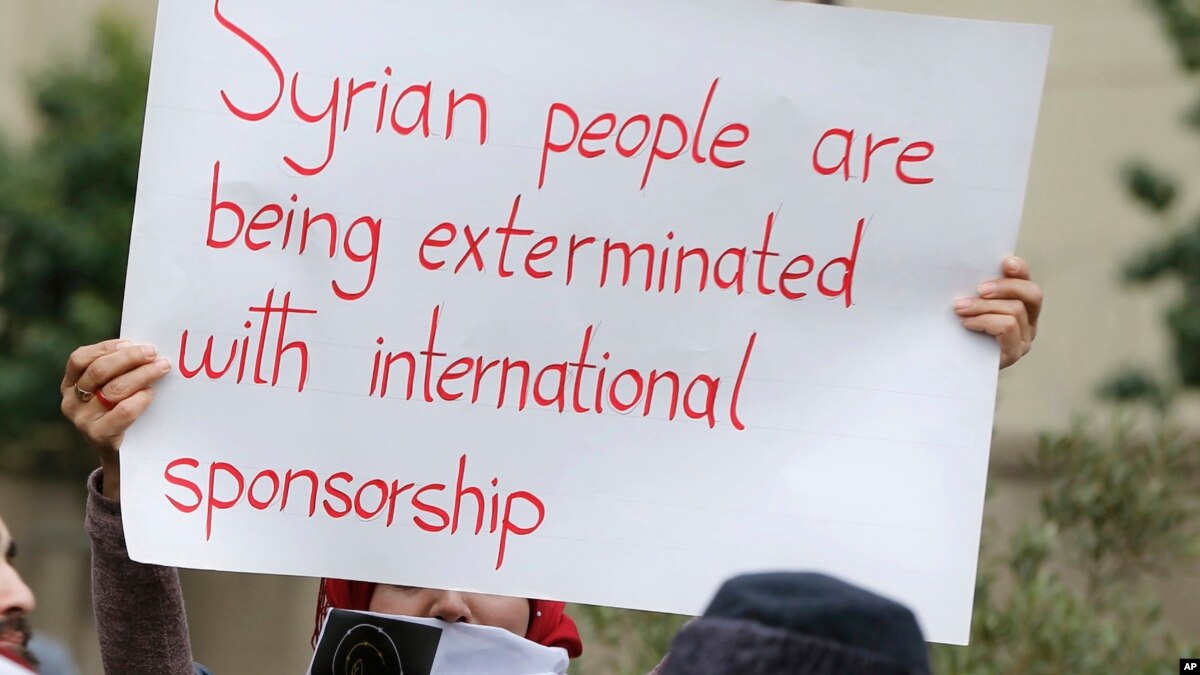
New fighting erupted Sunday near Damascus in spite of the United Nations' demand for a 30-day cease-fire to allow rescue and medical workers to enter the region.
The British-based Syrian Observatory for Human Rights said nine people were killed and another 31 injured outside the Syrian capital, boosting the death toll to more than 500 in clashes over the last week.
The fighting nonetheless appeared to be less intense in the wake of the U.N. Security Council's unanimous approval of the month-long truce. Attacks on residential areas appeared to have shifted to battles along the front lines between government forces and insurgents.
State media said government forces pushed into the capital's eastern Ghouta area, but opposition forces denied Damascus's troops had advanced. The Ghouta Media Center, an activist collective, said members of the Army of Islam insurgents had blocked the Syrian army, killing many soldiers.
Iranian General Mohammad Baqeri said Tehran, whose government backs Syrian President Bashar al-Assad, and Damascus would honor the U.N. resolution. But Baqeri also said the truce did not cover the area of the Damascus suburbs "held by the terrorists."
Ghouta-based activist Ahmad Khanshour said, "The Assad regime and his allies have shown no respect to the Security Council by launching their most intense offensive on Ghouta from several directions hours after the resolution was adopted."
State news media said the insurgents breached the truce by firing 15 shells at government-held areas.
Read More New Fighting Erupts Near Damascus Despite UN Cease-fire Demand : http://ift.tt/2GIpWKeSyrian Kurdish Leader Detained in Prague on Turkey's Request
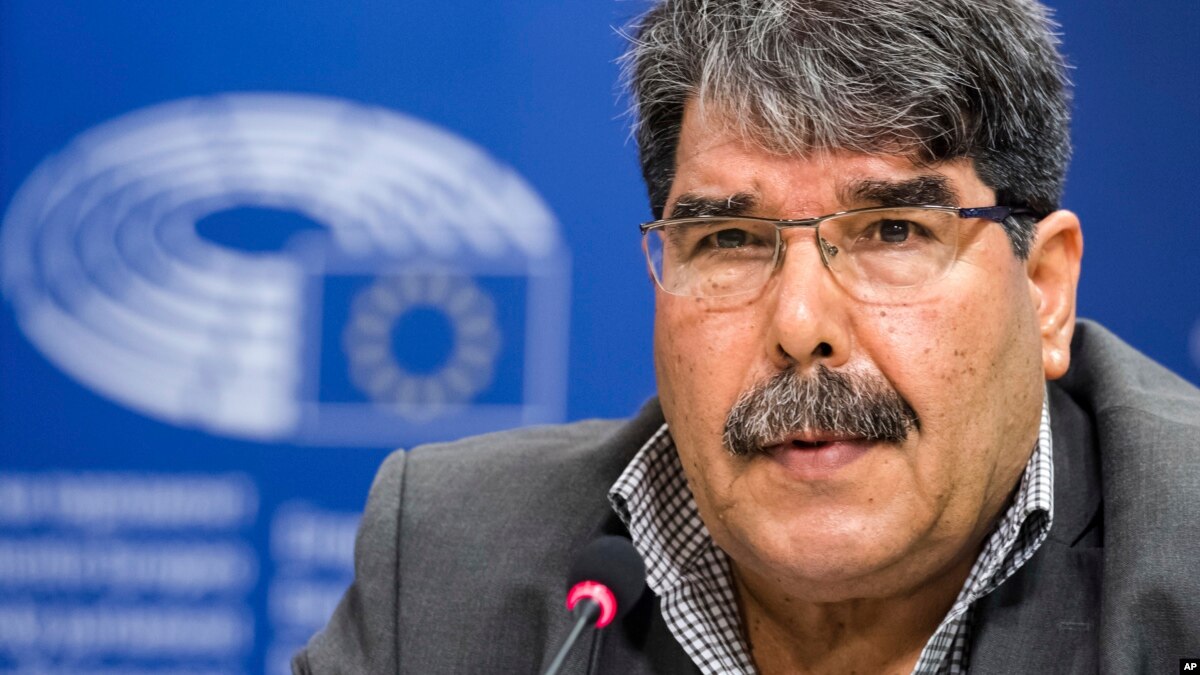
Czech authorities detained a former leader of a Syrian Kurdish political party under an Interpol red notice that was based on Turkey's request for his arrest, Turkey's official news agency and a Kurdish official said Sunday.
Anadolu news agency said Salih Muslim, former co-chair of the Democratic Union Party, or PYD, was detained on Saturday in Prague.
A Kurdish official close to Muslim said the former PYD leader was in Prague attending a conference. After a Turkish participant took a photograph of him, Czech police detained the Syrian politician, following a request by Turkey.
Czech police say that have arrested and placed in detention a 67-year-old foreigner at the request of Turkey's Interpol. No further details were immediately released by Czech police.
Muslim was put on Turkey's most-wanted list earlier in February with a reward for $1 million.
Turkey considers the PYD a "terrorist group" linked to outlawed Kurdish insurgents fighting within Turkey's own borders.
The party is the leading political Kurdish force in northern Syria, and Muslim remains highly influential even after stepping down as co-chair last year.
The Kurdish official said the former PYD leader was invited to Prague to take part in a conference held once every six months to discuss issues linked to the Middle East such as the Syrian crisis, Turkey, and the Arab-Israeli conflict.
The official, who is also in Prague, spoke on condition of anonymity because he was not authorized to release information about the conference.
Anadolu said Turkey is submitting an extradition request for Muslim. An extradition request would have be approved by a Czech court and by the justice minister. Muslim is a Syrian citizen.
On Jan. 20, Turkey launched an incursion into northern Syria, seeking to rout the U.S.-backed Syrian Kurdish militia, known as the People's Protection Units or YPG, from the enclave of Afrin. The YPG is the armed wing of the PYD.
Turkey shares a 911-kilometer border with Syria. The YPG controls much of the territory along the border.
Read More Syrian Kurdish Leader Detained in Prague on Turkey's Request : http://ift.tt/2opkPrKDamascus, Suburbs Quiet in Early Hours of Cease-Fire
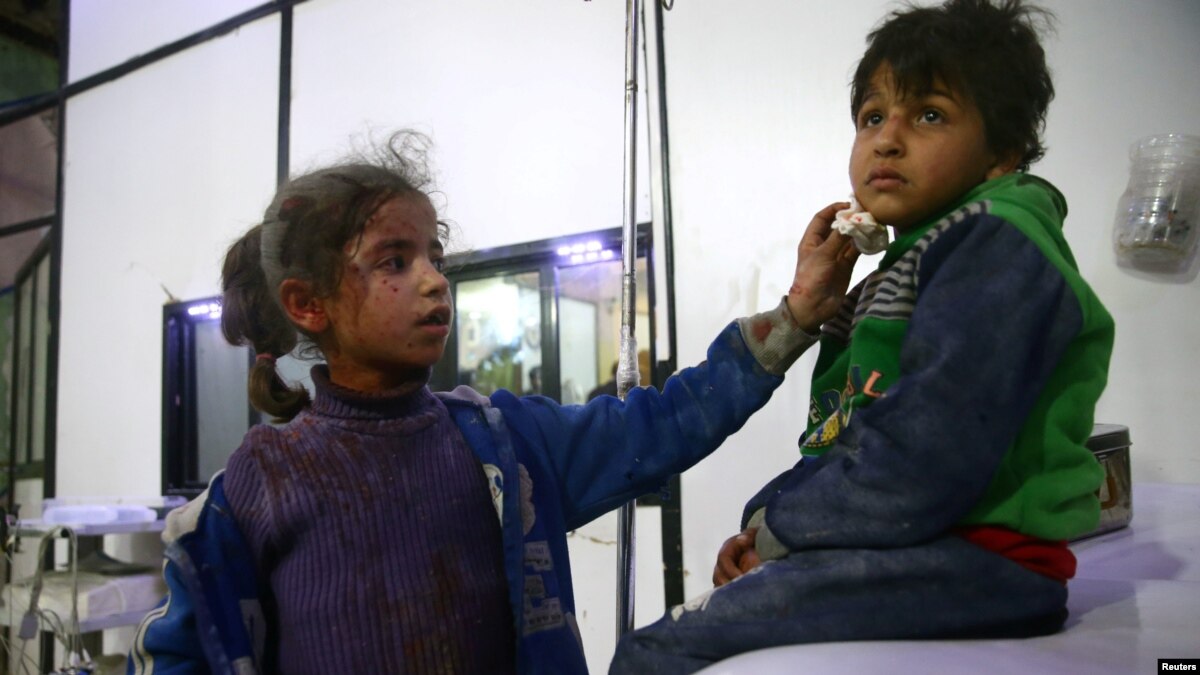
Syrian opposition activists and residents of Damascus say the city and its embattled eastern suburbs are relatively calm following the U.N. Security Council’s unanimous approval of a resolution demanding a 30-day cease-fire across Syria.
The activists reported few violations, including some clashes, on the southern edge of the rebel-held suburbs, known as eastern Ghouta, and two airstrikes late Saturday, shortly after the resolution was adopted.
The Britain-based Syrian Observatory for Human Rights said Sunday no deaths have been reported since the resolution passed.
Ghouta-based opposition activist Anas al-Dimashqi says the night was calm, but warplanes and drones are still flying over rebel-held areas.
Damascus residents say there’s more traffic in the streets, compared with previous days.
The resolution calls on all parties to immediately lift sieges of populated areas.
Read More Damascus, Suburbs Quiet in Early Hours of Cease-Fire : http://ift.tt/2ChhqnhSaturday, February 24, 2018
Security Council to Vote on Yemen-Related Resolution That Would Condemn Iran
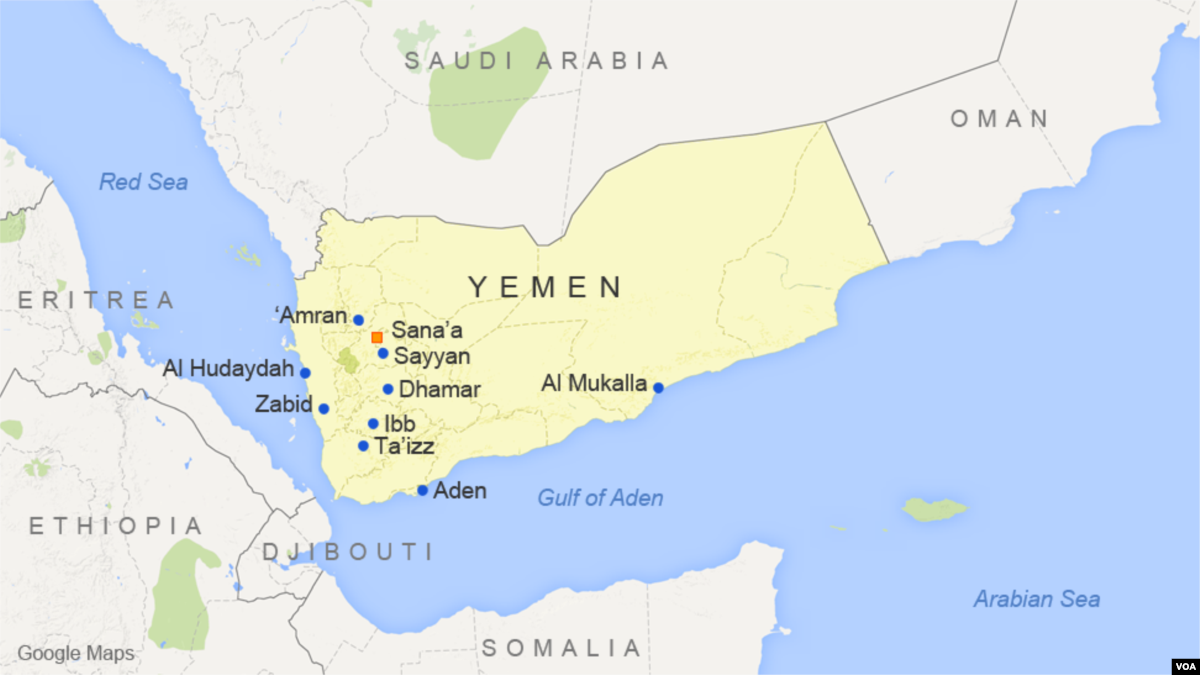
The U.N. Security Council is expected to vote Monday on a British-drafted resolution that would condemn Iran for violating a U.N. arms embargo by providing missiles and drones to Shiite rebels in Yemen — and commit to future action against Tehran.
Kuwait's U.N. Ambassador Mansour Al-Otaiba is the current council president. He told reporters Saturday, "We are still working on the text, but the intention is to adopt it Monday morning.''
Russia's U.N. Ambassador Vassily Nebenzia said this week that he opposed the draft, saying it should be about renewing the work of experts monitoring sanctions against Yemen, not condemning Iran.
The experts said in a January report that they'd identified Iranian missile remnants and other equipment introduced into Yemen after the 2015 arms embargo that were fired into Saudi Arabia.
Read More Security Council to Vote on Yemen-Related Resolution That Would Condemn Iran : http://ift.tt/2HJfdk9Explosions in Yemeni Port Kill 5 Near Anti-Terrorism Camp
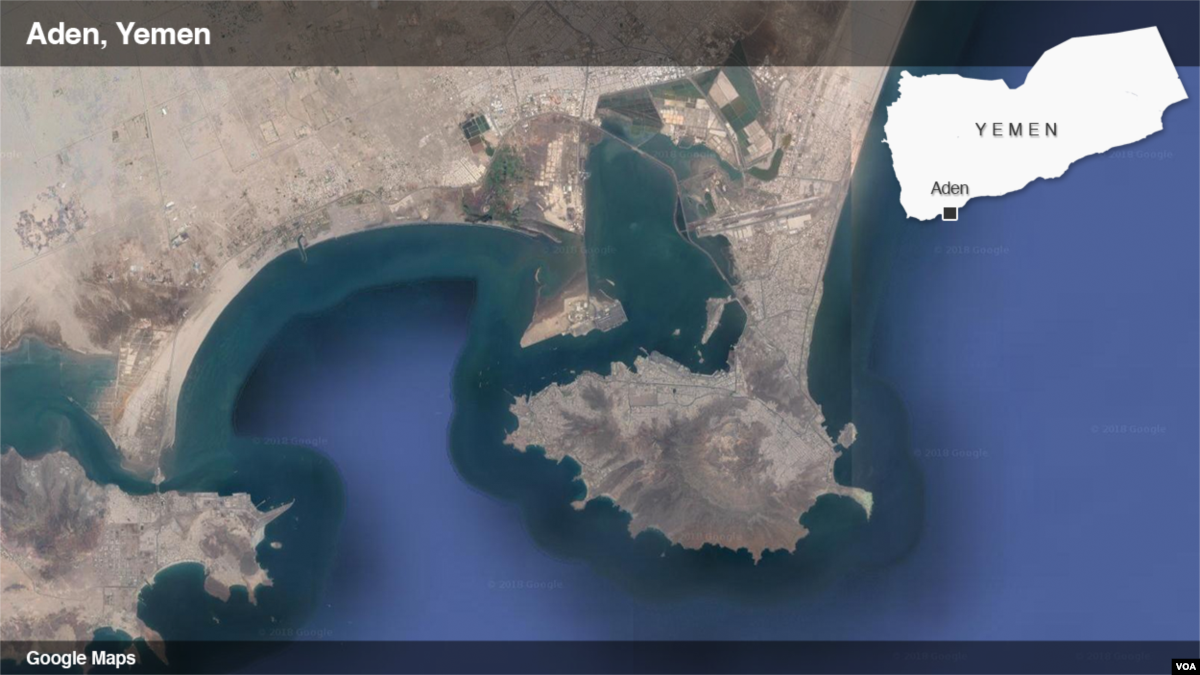
Two suicide car bomb attacks Saturday on a camp used by anti-terrorism forces in Yemen's port of Aden killed at least five people and wounded several others.
Soldiers were among the five bodies brought to the city's main Juhouriya hospital, according to the Reuters news service, after the attacks on the area known as Gold Mohr in southwestern Aden.
The government of Yemeni President Abd Rabu Mansour Hadi has been struggling to contain separatists in Aden, who have launched attacks on government facilities to try to gain control of the city.
Late Friday, the White House issued a release praising efforts by a coalition led by Saudi Arabia to bring humanitarian aid to Yemen.
Offloading supplies
Friday's release by the Trump administration noted that four World Food Program mobile cranes, funded by the United States, have begun offloading supplies at Yemen's Hudaydah port, as part of the Saudi-led coalition's efforts to alleviate the humanitarian crisis and contribute to Yemen's reconstruction.
The White House statement said the U.S. stood ready to assist Saudi Arabia and the United Arab Emirates in expanding Yemenis' access to food and medicine. It also urged ethnic Houthis to work with the international community to make sure supplies are delivered to people in need in Houthi-controlled areas.
The statement also said the United States appreciated "the coalition's willingness to contribute to Yemen's reconstruction, including investment in key ports and transportation infrastructure," as well as to work with the U.N., World Food Program and other nongovernmental agencies "to meet the needs of millions of desperate Yemeni people."
The statement concluded by saying the United States "stands ready to support U.N.-led efforts to achieve peace."
Read More Explosions in Yemeni Port Kill 5 Near Anti-Terrorism Camp : http://ift.tt/2GGnbJlUN Security Council, With Russian Support, Demands 30-day Syria Cease-Fire
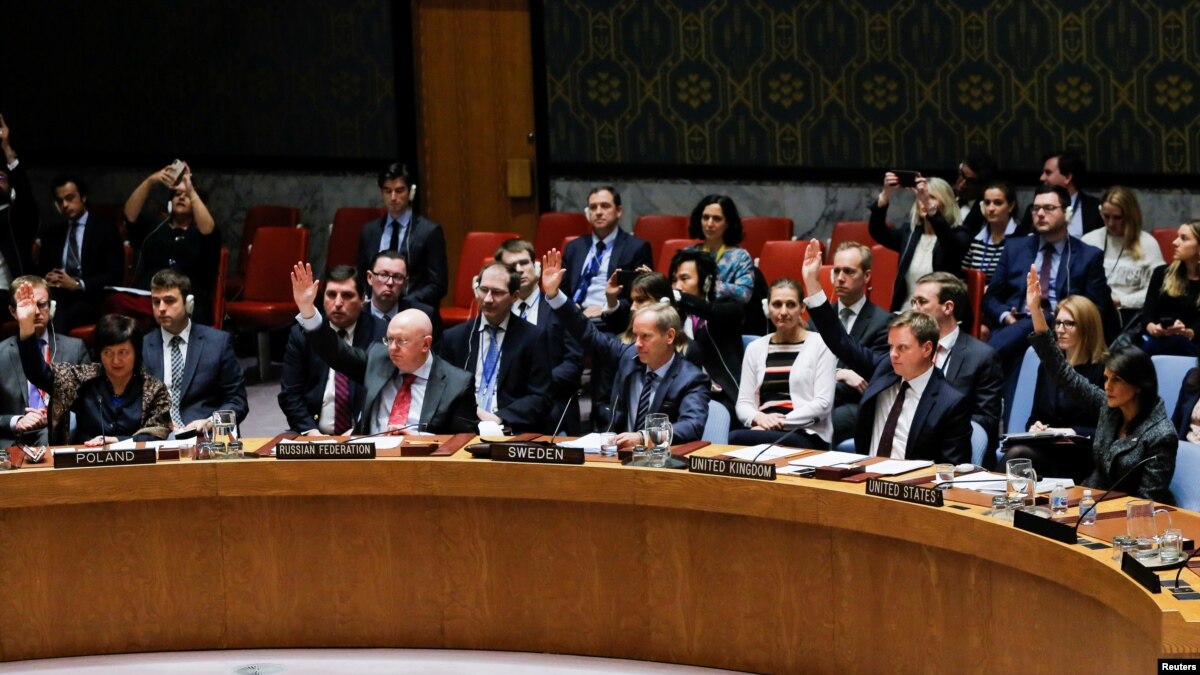
The United Nations Security Council adopted a resolution on Saturday demanding a 30-day truce in Syria to allow aid deliveries and medical evacuations with the support of Syrian ally Russia after a flurry of last-minute negotiations.
The vote comes as warplanes pounded eastern Ghouta, the last rebel enclave near Syria's capital, for a seventh straight day.
U.N. Secretary-General Antonio Guterres appealed on Wednesday for an immediate end to "war activities" there.
This is a breaking story. Please check back for updates.
Read More UN Security Council, With Russian Support, Demands 30-day Syria Cease-Fire : http://ift.tt/2HGJIaeTurkey: Early Opening of Jerusalem US Embassy ‘Extremely Worrying’

The Turkish government called it "extremely worrying" the U.S. will open an embassy in Jerusalem this coning May instead of by the end of next year as had been previously announced.
"This decision shows the U.S. administration's insistence on damaging the grounds for peace by trampling over international law, resolutions of the United Nations Security Council on Jerusalem," Turkey's Foreign Ministry said Saturday in a statement.
Vice President Mike Pence told the Israeli parliament last month the move of the mission from Tel Aviv to Jerusalem would take place at the end of 2019, but the State Department said Friday the administration would open the embassy in May to coincide with the 70th anniversary of Israel's founding.
President Donald Trump announced U.S. recognition of Jerusalem as Israel's capital in December, angering Washington's Arab allies and Palestinians, who claim the eastern part of the Old City as their capital.
"Turkey will continue its effort to protect the legitimate rights of the Palestinian public ... against this extremely worrying decision by the U.S.," the ministry said.
The Palestinian leadership said Friday moving the embassy a year earlier than originally announced was a "provocation to Arabs."
Jerusalem is considered holy by Christians, Jews and Muslims and is central to the Israeli-Palestinian conflict.
The move further strains relations between the U.S. and Turkey, already at odds on a number of issues, including Turkey's latest military offensive against a U.S.-supported Kurdish militia in Syria.
The U.S. is the only country to recognize Jerusalem as Israel's capital, a move that has also created dissension between the U.S. and the European Union over peace efforts in the Middle East.
24 Killed in New Syrian Government Airstrikes East of Damascus
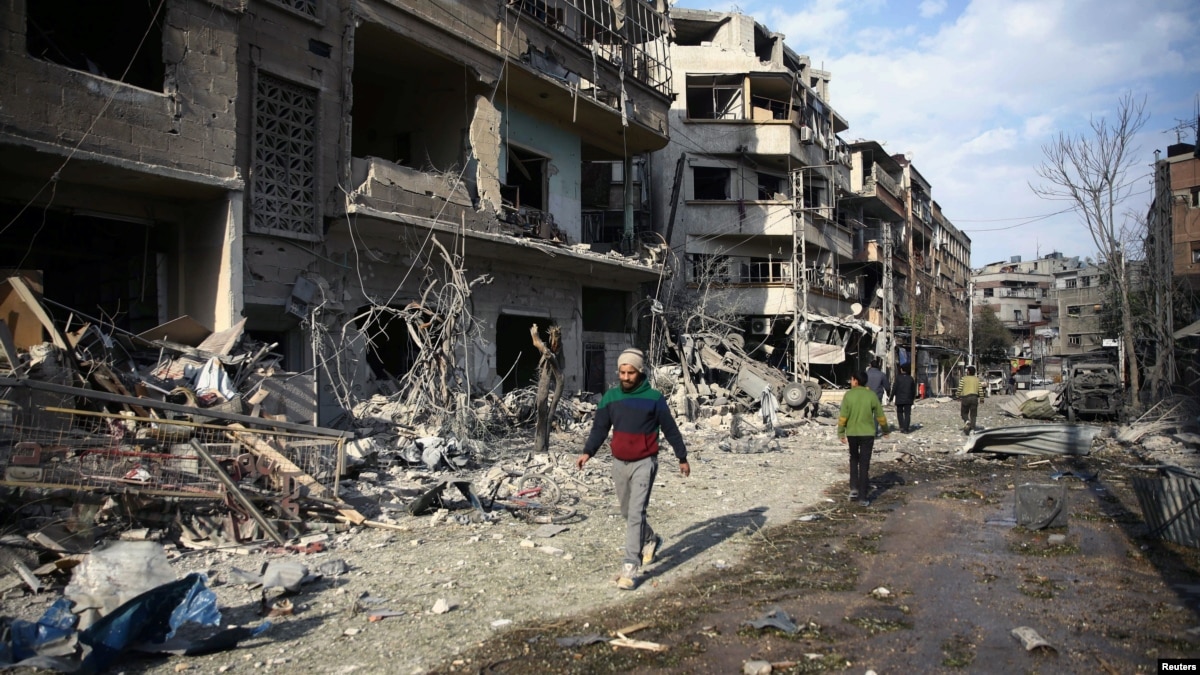
Another wave of airstrikes pounded the Syrian rebel enclave of eastern Ghouta Saturday, killing at least 24 people and increasing the civilian death toll over the past week to more than 500, including more than 120 children, a Britain-based monitoring group said.
The Syrian Observatory for Human Rights and witnesses said Saturday the week-long bombing campaign by the Syrian government and Russia has been so relentless that first responders have not had the chance to count bodies.
"Maybe there are many more," said Siraj Mahmoud, a civil defense spokesman. "We weren't able to count the martyrs yesterday or the day before because the warplanes are touring the skies." Syrians often refer to their dead as “martyrs.”
In one of the deadliest aerial assaults of the seven-year-old war, the monitoring group said Saturday's strikes hit Douma, Hammouriyeh and several other towns.
Residents hiding in charitable medical facilities and basements denounced attacks on a dozen hospitals in the area of Ghouta, the only remaining large rebel stronghold near the capital of Damascus.
There was no immediate comment from the Syrian government. But the government and Russia have previously said they only pursue militants in an effort to stop their mortar attacks on the capital.
Russia has been Syrian President Bashar al-Assad's primary ally since the war began in March of 2011. Moscow entered the conflict in 2015, tipping the balance of power toward Assad.
The United Nations Security Council is set to vote Saturday on a draft resolution that calls for a 30-day cease-fire throughout Syria to allow medical evacuations and aid delivery.
The U.N. says nearly 400,000 people live in eastern Ghouta, which has been under a government blockade since 2013 - resulting in shortages of food and medical supplies.
Eastern Ghouta, about 17 kilometers east of Damascus, is under the control of two Islamist factions and Syria's former al-Qaida affiliate.
Read More 24 Killed in New Syrian Government Airstrikes East of Damascus : http://ift.tt/2CHKHmNIOM Appeals for $194M to Help Syrians Displaced by War
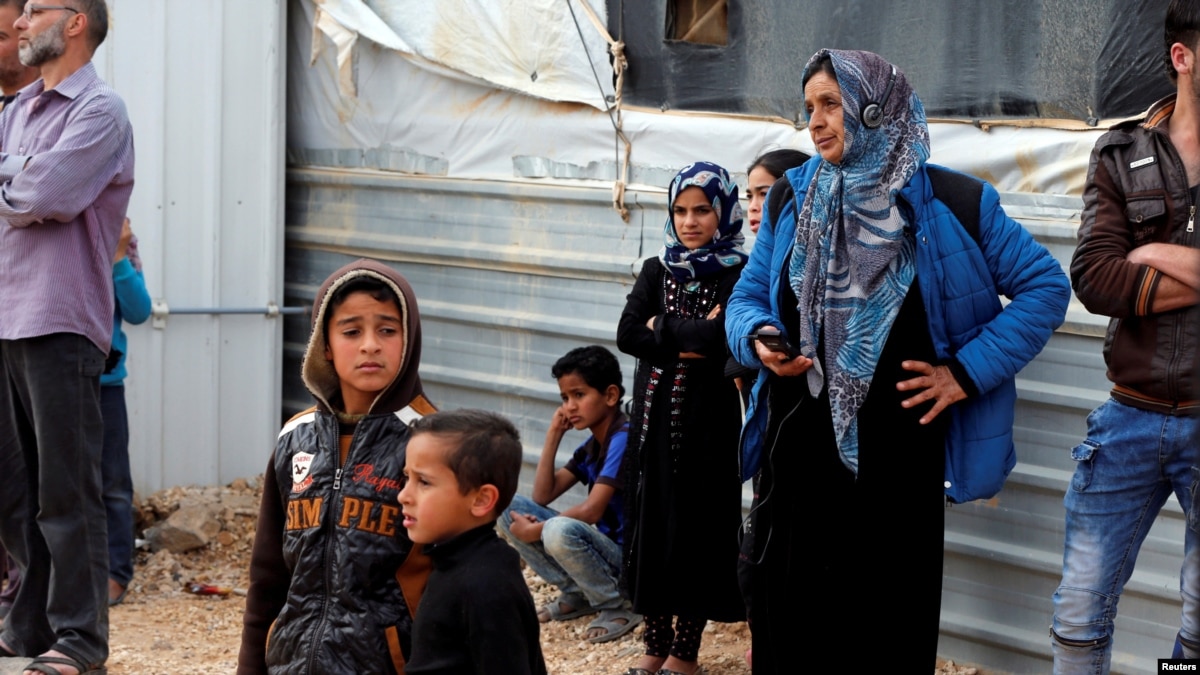
The U.N. migration agency is appealing for nearly $194 million to provide essential aid to three million Syrian war victims displaced internally or as refugees in neighboring countries. The money also would support the communities hosting them.
Nearly seven years of conflict in Syria has taken a heavy toll. The United Nations reports about one-half million people have been killed and more than 18.5 million civilians both inside and outside the war-torn country are in need of humanitarian assistance.
The International Organization for Migration reports more than six million people are internally displaced in Syria, and ongoing violence continues to force people to flee their homes, many multiple times.
IOM spokesman Joel Millman says it is vital to provide a lifeline to the many displaced who are trying to survive the deteriorating conditions in the country.
“Access to primary health care has been drastically reduced inside Syria, while agricultural production has been cut in half compared to 2011 levels. Livelihoods have also been severely hampered by the conflict and many areas of the country are contaminated by weapons,” Millman said.
The U.N. reports more than 5.5 million Syrians have taken refuge in five neighboring countries: Lebanon, Jordan, Turkey, Iraq and Egypt. Millman says this large number of people places a huge burden on the host countries.
“Since the crisis began, economic growth within host countries has been severely affected. With high unemployment rates, especially among young people, and limited resource availability, it is challenging for governments and municipalities to provide basic services,” Millman said.
The IOM says money from the appeal will provide one million people with non-food items and shelter support. Other assistance will include access to safe water, health services, community-led protection services, and schooling for tens of thousands of displaced and refugee children.
Read More IOM Appeals for $194M to Help Syrians Displaced by War : http://ift.tt/2Cfg24RFriday, February 23, 2018
Amnesty Says Politics of Fear, Hate Being Normalized by Some Leaders
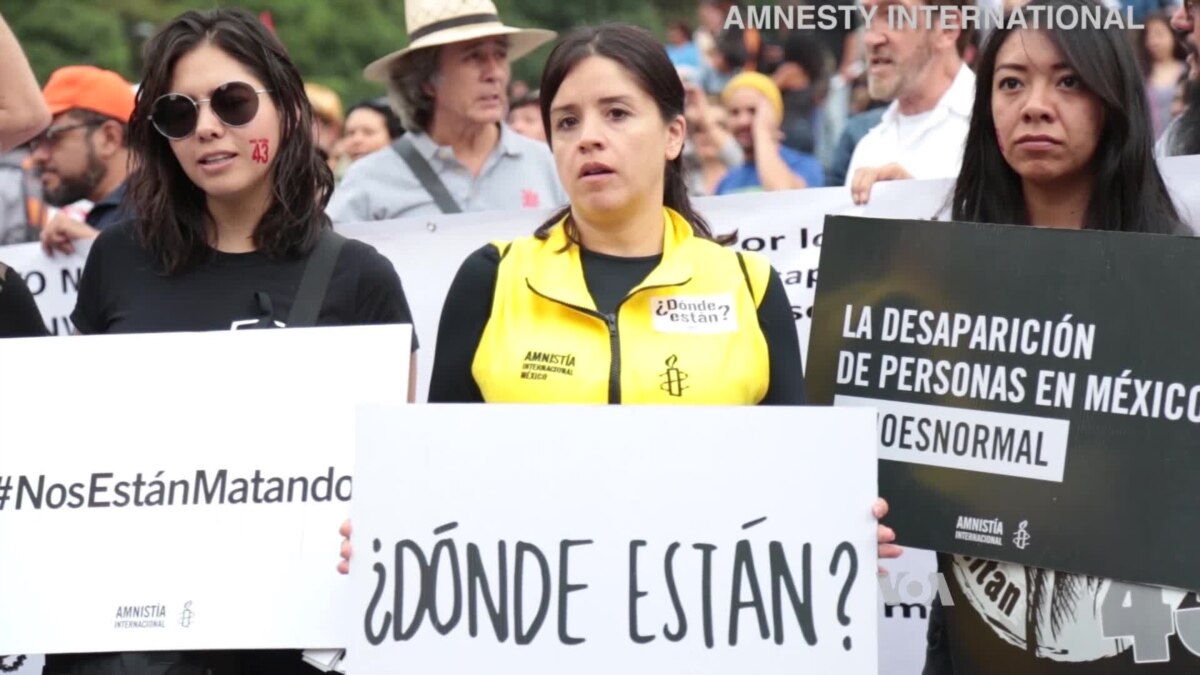
Rights group Amnesty International's annual report documents human rights violations in nearly 160 countries and claims 2017 saw the politics of hate and fear normalized by some of the most powerful leaders in the world. VOA Correspondent Mariama Diallo has this report.
UN Security Council Works to Hammer Out Syria Cease-fire
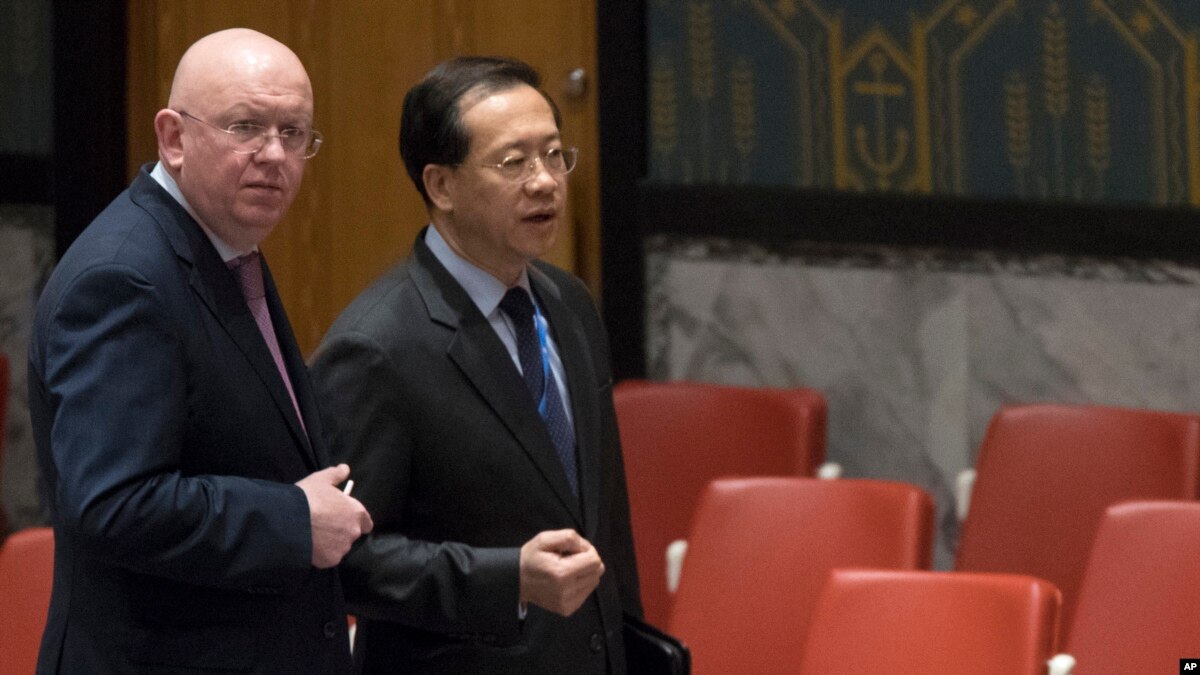
United Nations diplomats carried out last-minute negotiations Friday in an effort to avoid a Russian veto and adopt a resolution implementing a 30-day cease-fire across Syria and lift sieges on towns, including in the rebel-held eastern Ghouta district.
U.N. Security Council members were due to vote at 11 a.m. in New York, but delayed until at least 2:30 p.m. as they tried to find consensus.
Russia had expressed objections to the draft on Thursday and diplomats were continuing to work intensively to try to hammer out a compromise.
“We are still working on language on some of the paragraphs, but we are almost there,” council president Kuwaiti Ambassador Mansour al-Otaibi told reporters mid-day Friday.
He addressed the press flanked by the other nine elected members of the Security Council. “The whole E [elected]10 members, we are here just to show that we are all united and we want the draft to be adopted today at 2:30 p.m.,” he said.
“We’ve really taken our responsibility,” Netherlands Ambassador Karel van Oosterom told reporters of the elected members. “We’ve tried to cross the bridge of the different interests that are there.”
The text, drafted by Sweden and Kuwait, demands at least a 30-day cessation of hostilities to allow in aid and evacuate the critically ill and injured. It also calls for the lifting of sieges in four specific locations, including eastern Ghouta.
Earlier Friday, French President Emmanuel Macron and German Chancellor Angela Merkel sent a joint letter to Russian President Vladimir Putin, appealing to him to support the draft resolution and saying it is now time to act.
U.N. Special Envoy Staffan de Mistura also called for an immediate cease-fire to stop both the "horrific" bombing of besieged eastern Ghouta and indiscriminate mortar shelling on Damascus.
U.S. State Department Spokeswoman Heather Nauert told reporters Thursday that Russia has a “unique responsibility” for the more than 400 people “horrifically killed by the Syrian regime” in the Damascus suburb of eastern Ghouta.
Meanwhile, Syrian government warplanes supported by Russia pounded the rebel-held enclave of eastern Ghouta for a sixth straight day Friday, killing at least five people, opposition activists and a war monitor reported.
Fighting has escalated in the enclave as the Syrian military and its allied forces appear to be launching an all-out operation to re-take the area, which is one of the last near Damascus still under control of the armed opposition.
Read More UN Security Council Works to Hammer Out Syria Cease-fire : http://ift.tt/2omiXA2Sources: Republican Megadonor Offers to Help Pay for Jerusalem Embassy
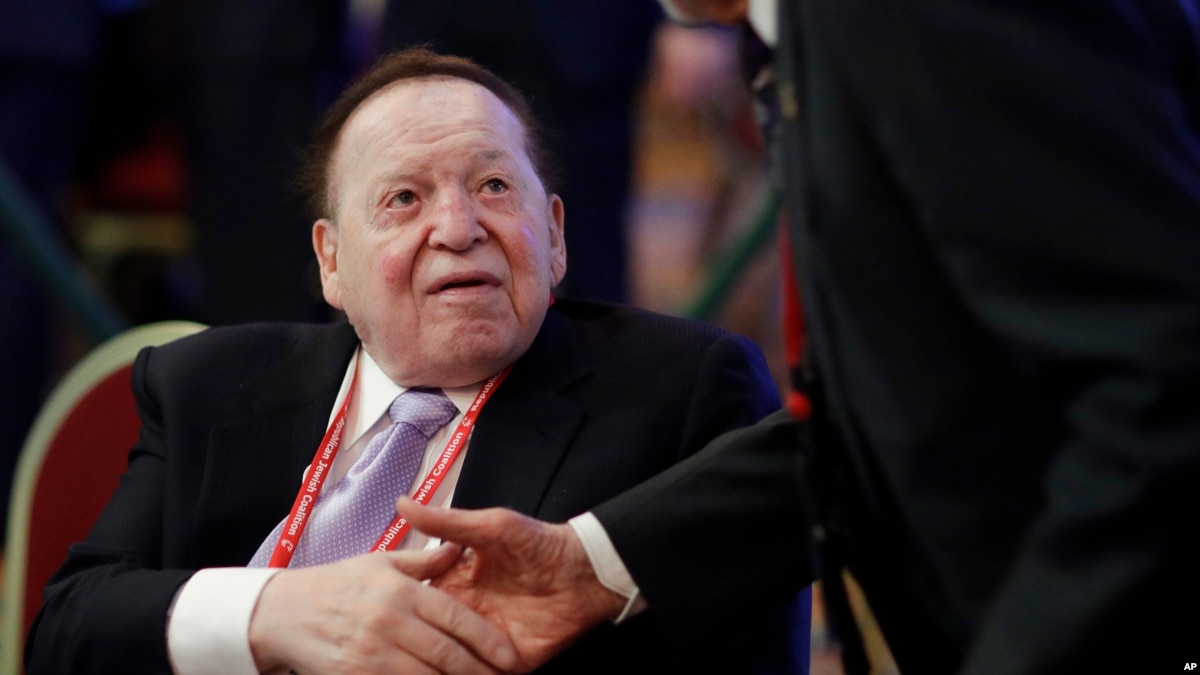
The Trump administration is considering an offer from Republican mega-donor Sheldon Adelson to pay for at least part of a new U.S. embassy in Jerusalem, four U.S. officials told The Associated Press.
Lawyers at the State Department are looking into the legality of accepting private donations to cover some or all of the embassy costs, the administration officials said. The discussions are occurring as the new embassy clears its final bureaucratic hurdles.
On Thursday, Secretary of State Rex Tillerson ended weeks of delay by signing off on a security plan for moving the embassy from Tel Aviv to the holy city, according to the officials, who weren't authorized to discuss the issue publicly and demanded anonymity.
In one possible scenario, the administration would solicit contributions not only from Adelson but potentially from other donors in the evangelical and American Jewish communities, too.
One official said Adelson, a Las Vegas casino magnate and staunch supporter of Israel, had offered to pay the difference between the total cost — expected to run into the hundreds of millions of dollars — and what the administration is able to raise.
Under any circumstance, letting private citizens cover the costs of an official government building would mark a significant departure from historical U.S. practice. In the Jerusalem case, it would add yet another layer of controversy to Trump's politically charged decision to move the embassy, given Adelson's longstanding affiliation with right-wing Israeli politics.
It's not clear if there are any precedents, nor whether government lawyers would give the green light to accept Adelson's or anyone else's donations for the embassy.
Adelson's unconventional offer was made around the time Trump announced in December he would move the embassy to the disputed city of Jerusalem. It would address the president's stated distaste for shelling out eye-popping sums for overseas diplomatic facilities. Although Trump has promoted the Jerusalem move as fulfilling a key campaign promise, he also was outspoken last month in blasting the $1 billion price tag for a new embassy in London.
Since Trump's announcement, his administration has been sifting through options for fast-tracking the Israel embassy's relocation. Last month, Vice President Mike Pence announced during a visit to Israel that the embassy would move by the end of 2019 — possibly earlier. Ambassador David Friedman, who lobbied for Trump's decision to recognize Jerusalem as Israel's capital, has advocated moving the embassy as soon as possible.
The U.S. has looked at several possible sites. The most likely plan involves a phased approach to opening the embassy in Jerusalem's Arnona neighborhood at an existing U.S. facility that handles consular affairs like passports and visas. The U.S. could initially retrofit a small suite of offices in that facility to accommodate Friedman and one or two top aides such as his chief of staff.
That would allow the administration to hang an "embassy" sign over the door and formally open it, perhaps in the next few months. The ribbon could be cut in time for Israel's Independence Day, Yom Ha'atzmaut, which takes place in April.
The rest of the embassy staff would remain at first in America's current facility in Tel Aviv. Over time, the Arnona facility would be expanded to accommodate more embassy personnel. The expansion could ultimately involve an adjacent property that currently houses a home for senior citizens. It will come under U.S. control in the next few years under a previous arrangement, officials said.
Retrofitting just a few offices could be accomplished at minimal cost. But expanding the new embassy into a full-fledged complex that houses the bulk of America's diplomatic staff in Israel would easily cost more than $500 million dollars, officials familiar with the process said. Particularly pricey are the strict security requirements for embassies that are written into U.S. law.
It's unclear how much of the cost Adelson might be willing to cover.
The White House declined to comment. An Adelson spokesman didn't respond to multiple requests for comment.
The State Department said it had "nothing to announce" about the Jerusalem embassy move and would not "get ahead of any decisions by the secretary."
"We have no confirmation or details about this hypothetical proposal," the State Department said.
Kathy Bethany, the former cost management director for the State Department's Bureau of Overseas Building Operations, said she couldn't recall any instances of the U.S. government accepting donations to build embassies during her tenure, which ended in 2014.
"I don't know how well that would work," Bethany said. "Would we be beholden to putting their name on the building? I've never heard of that."
The State Department's Foreign Affairs Manual lays out a process for accepting gifts from private citizens, including real estate. The process says gifts must be evaluated case-by-case through a process that includes ensuring the gift "would not give the appearance of a conflict of interest."
Adelson, who donated $5 million to Trump's inaugural committee, is one of the Republican Party's biggest donors and a major supporter of Israeli Prime Minister Benjamin Netanyahu. Adelson also finances Israel Hayom, a pro-Netanyahu newspaper that is distributed free throughout Israel.
If lawyers decide to allow donations for the Jerusalem embassy, it wouldn't be without significant political risk for Trump. The president already faces major criticism from Palestinians and others who say his decision to move the embassy to Jerusalem — also claimed by the Palestinians for the capital of their future state — tipped the scaled unfairly in Israel's favor.
Mort Klein, president of the pro-Israel group Zionist Organization of America and a close associate of Adelson, said accepting donations would be ill-advised. Klein said he knew Adelson was "deeply interested" in seeing the embassy relocate to Jerusalem but was unaware that the casino mogul had offered to help pay for it himself.
"This is a government project. It's a government-run embassy," Klein said. "I don't want people to be able to say it was Jewish money."
Read More Sources: Republican Megadonor Offers to Help Pay for Jerusalem Embassy : http://ift.tt/2BJIOJwThursday, February 22, 2018
Amnesty: Politics of Fear, Hate Being Normalized by Some Leaders
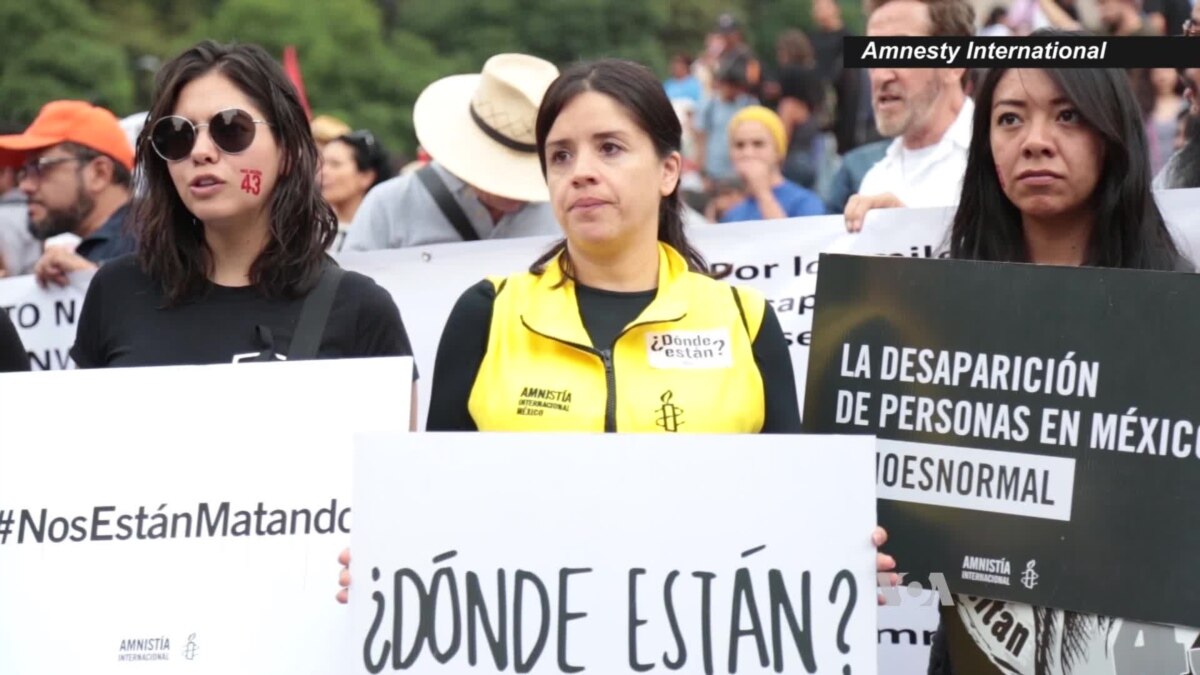
Rights group Amnesty International's annual report documents human rights violations in nearly 160 countries and claims 2017 saw the politics of hate and fear normalized by some of the most powerful leaders in the world. VOA Correspondent Mariama Diallo has this report.
Twice-a-year Phenomenon of the sun Draws Global Crowd as Egypt's Tourism Industry Sees Signs of Recovery
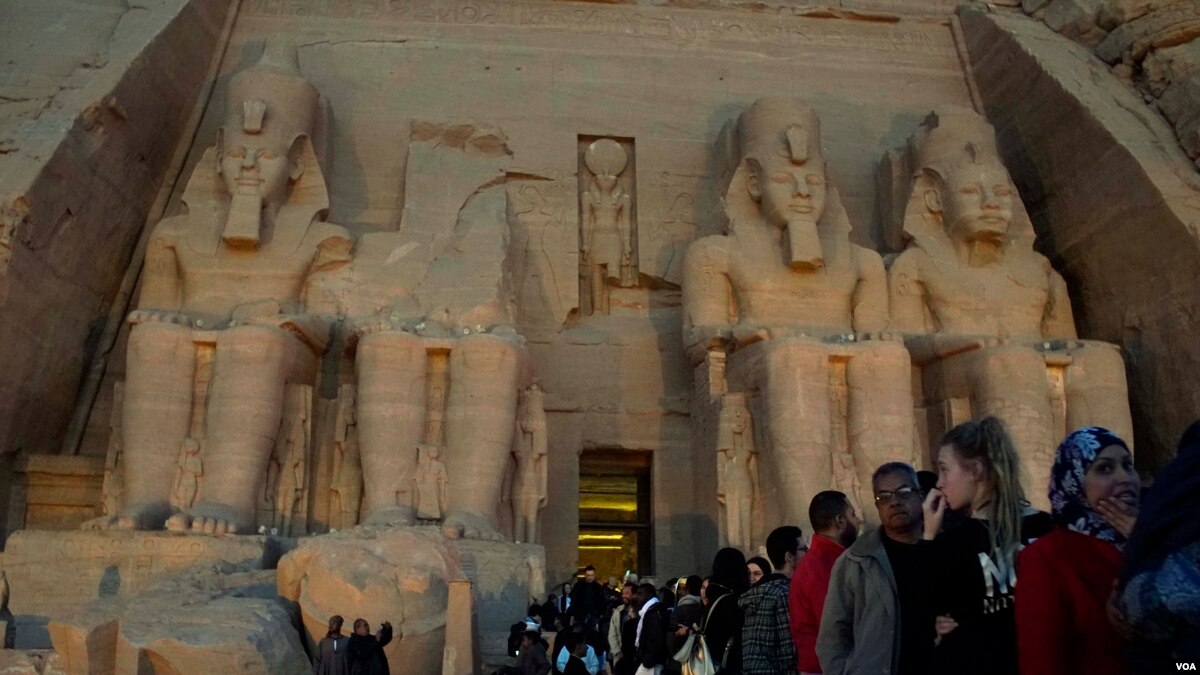
Visitors from across the world gathered Thursday in Aswan, Egypt, for a rare glimpse of a unique event that still amazes the world - when the sun rays go inside the corridor of the Abu Simbel temples and perpendicular on the faces of Ramses II, his wife, Queen Nefertari and the god Amun on the back wall. It happens twice a year on the same two dates: Oct. 22, Ramses II's birthday, and on his coronation day, Feb. 22.
Show more
UN Flies Refugees from Libya to Europe, Where More Uncertainty Awaits
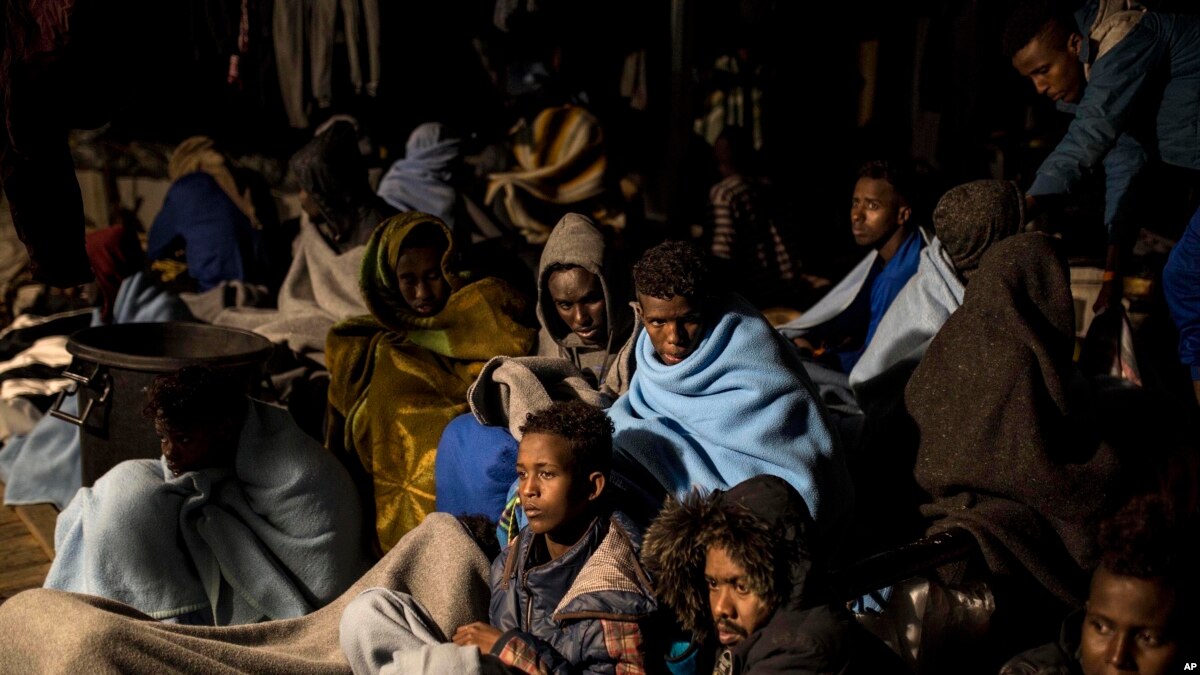
The U.N. refugee agency has evacuated more than 1,000 highly vulnerable people from Libya in a three-month operation that began last November. The agency hopes to evacuate hundreds more and is searching for more lasting solutions for people who are held in detention centers in Libya, and whose conditions have been described as inhumane.
UNHCR officials say they have been working to evacuate mainly women and children, including single mothers and unaccompanied minors — people who have been held in detention centers in Libya. UNHCR spokesperson in Italy Carlotta Sami says arriving in the country means new hope and a chance at a life without violence or abuse.
“For those that are most vulnerable and in a very difficult situation, the evacuation is a solution. It is a life-saving solution,” said Sami.
They are mainly nationals from Eritrea, South Sudan and Somalia. An agreement has been reached with the Libyan authorities to release hundreds of these refugees who are in situations of extreme hardship.
Among those arriving in Italy on an evacuation flight this month is Amanuel, an Eritrean who fled to Libya. He is a self-taught artist, and is deaf. Speaking to the UNHCR through his cousin, Anouif, he explains how drawing in the camp helped him cope with hardship, as he dreamt of the safety of Europe.
His cousin says Amanuel started drawing when he was seven. As he grew, his work got better.
Anouif explains Amanuel inspired others at the camp in Libya to get through the difficult times.
Because of everything he has been though, his cousin explains, he is accepting. “Why are we victims like that?” he asks.
The two cousins are among the more than 300 refugees who arrived on two recent flights from Tripoli to Rome. Hundreds of others have been airlifted to Niamey in Niger where they were taken to safe houses.
U.N. officials say that in the first six weeks of this year, more than 8,000 have made the risky journey to Europe by sea, often at the mercy of unscrupulous smugglers.
“What we have to do is to avoid (that) these people to go and risk their lives in the hands of the smugglers,” said Sami.
The UNHCR provides medical check-ups, food and warm clothes. The refugees are transferred to reception facilities across Italy. They then receive assistance with asylum requests, information on training opportunities, and help in finding a job. But Sami is urging European countries to do much more.
“We asked for 40,000 places in Europe to receive specific vulnerable refugees. ‘Till today we have received pledges for a bit over 13,000. So, we need more places. That is clear!” said Sami.
She says the UNHCR hopes to evacuate at least another 1,000 people this year, but those plans are uncertain. Finding them places is not easy as European nations hesitate to take in any more asylum seekers.
The migrant crisis saw more than a million people, mostly Muslims, enter Europe in one year alone. Public pressure since then has prompted governments in Europe to rethink their migration policies and restrict the numbers of people they accept.
How many people the flights continue to bring to Europe will depend on how many places are made available.
Read More UN Flies Refugees from Libya to Europe, Where More Uncertainty Awaits : http://ift.tt/2sKpXeBAmnesty Says Politics of Fear and Hate Being Normalized by Some Leaders
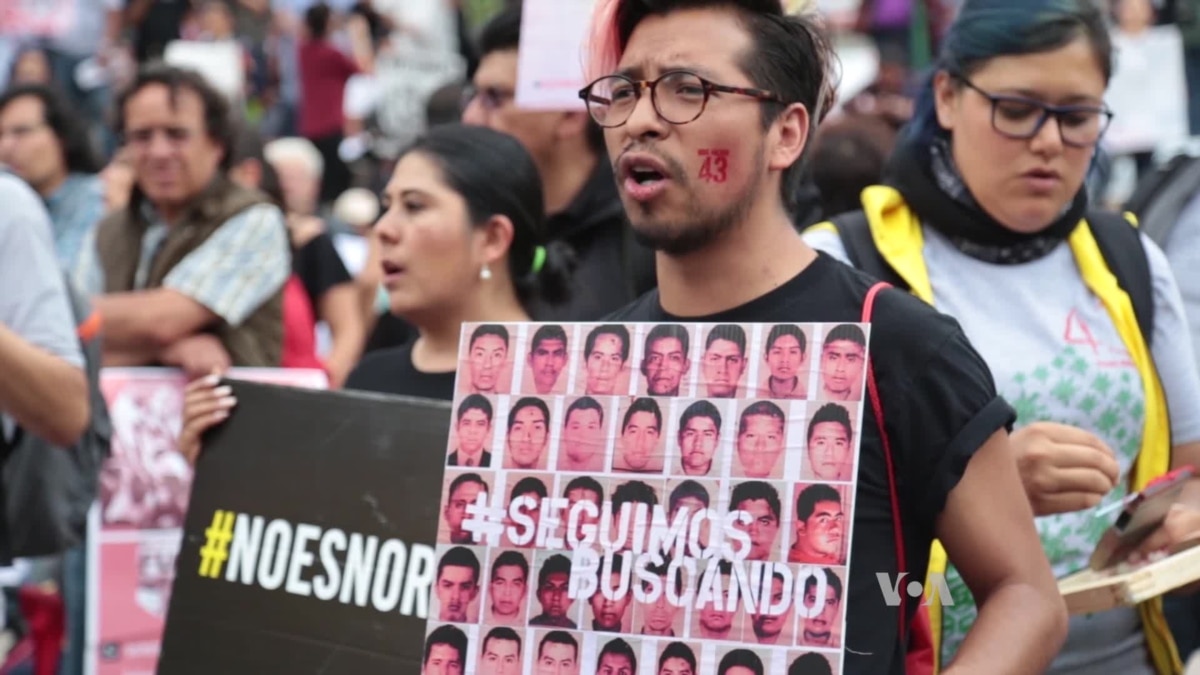
Rights group Amnesty International's annual report documents human rights violations in nearly 160 countries and claims 2017 saw the politics of hate and fear normalized by some of the most powerful leaders in the world. VOA Correspondent Mariama Diallo has this report.
Wednesday, February 21, 2018
Israeli Media: Netanyahu Confidant Turns State Witness in Corruption Probe
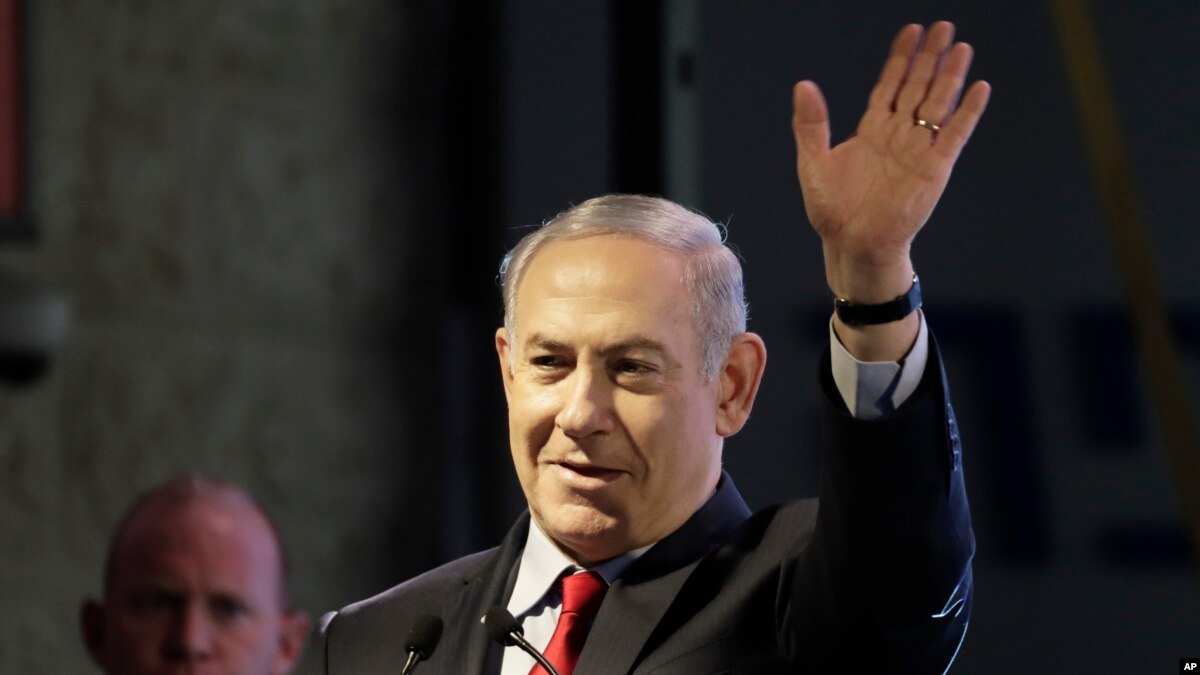
Israeli media say a close associate of Prime Minister Benjamin Netanyahu has agreed to testify against him in a bribery scandal.
Shlomo Filber was arrested on suspicion of promoting the interests of Israel's powerful telecom company in exchange for more positive news coverage of the prime minister.
Police have not confirmed that Filber has turned state's witness, but Netanyahu quickly denied any wrongdoing and described the allegations as a witch hunt, madness and lies.
The new revelations follow a police recommendation last week that Netanyahu should be indicted for bribery and fraud in two other corruption cases.
Opposition leaders like Tzipi Livni are calling on the Israeli leader to resign.
Livni said Netanyahu is corrupt and is so preoccupied with trying to save his political life that he cannot effectively govern.
But Netanyahu's right-wing coalition is standing behind him. Knesset member Yoav Kish of the ruling Likud party said unless there is an indictment, Netanyahu must be considered innocent until proven guilty.
The final decision on an indictment rests with the attorney general and could take months.
Netanyahu has been in office for nine years, but the latest developments have prompted many analysts to conclude that his days in power are numbered.
Read More Israeli Media: Netanyahu Confidant Turns State Witness in Corruption Probe : http://ift.tt/2EL9hVGBahrain Sentences Activist Rajab to 5 Years in Prison For Tweets
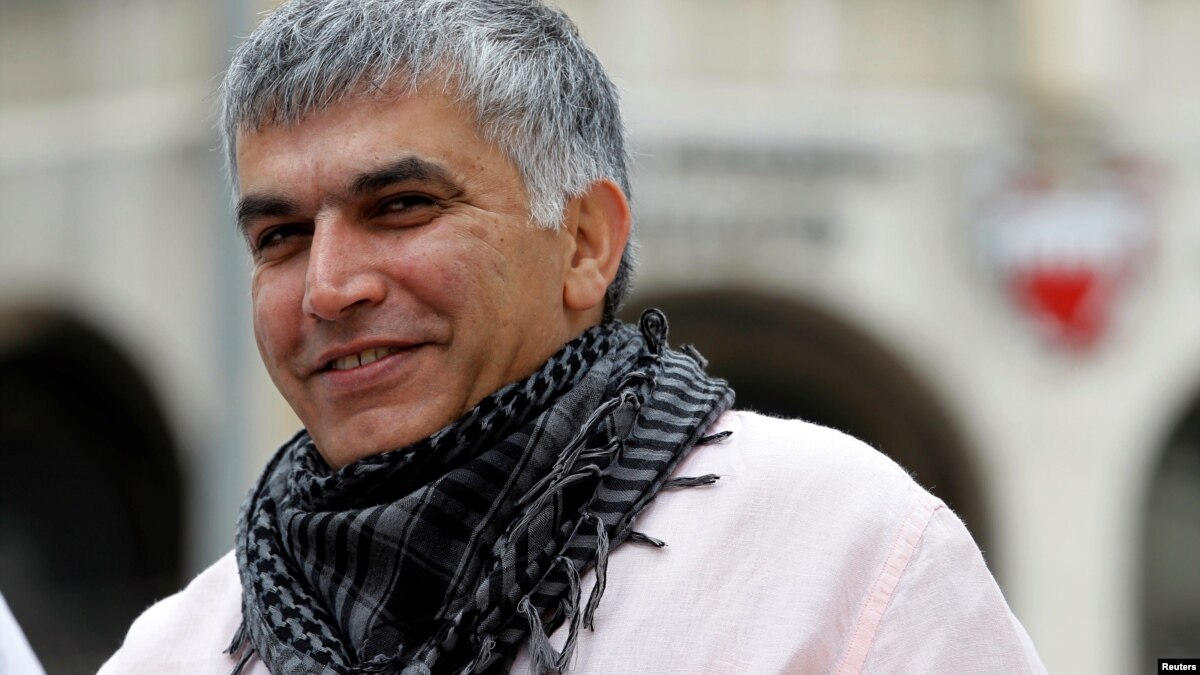
A court in Bahrain has sentenced prominent human rights activist Nabeel Rajab to five years in jail for tweeting comments critical of the Saudi-led coalition airstrikes in Yemen and alleging prison abuses.
The charges against him included insulting a neighboring country and national institutions.
Rajab played a leading role in 2011 pro-democracy protests that came as a wave of demonstrations hit countries across the region.
Since then he has been jailed multiple times, and before Wednesday's ruling was already serving a two-year sentence for comments he made during a television interview.
Rajab is the president of the Bahrain Center for Human Rights, which after the sentencing called his trial "a mockery of justice."
Bahrain is home to the U.S. Navy's Fifth Fleet.
U.S. State Department spokeswoman Heather Nauert told reporters Tuesday the United States is "disappointed" by recent court decisions regarding Rajab.
"We continue to have conversations with the government of Bahrain about our very serious concerns," she said.
Read More Bahrain Sentences Activist Rajab to 5 Years in Prison For Tweets : http://ift.tt/2ET9HgaAbbas Calls for International Conference to Restart Mideast Peace Process
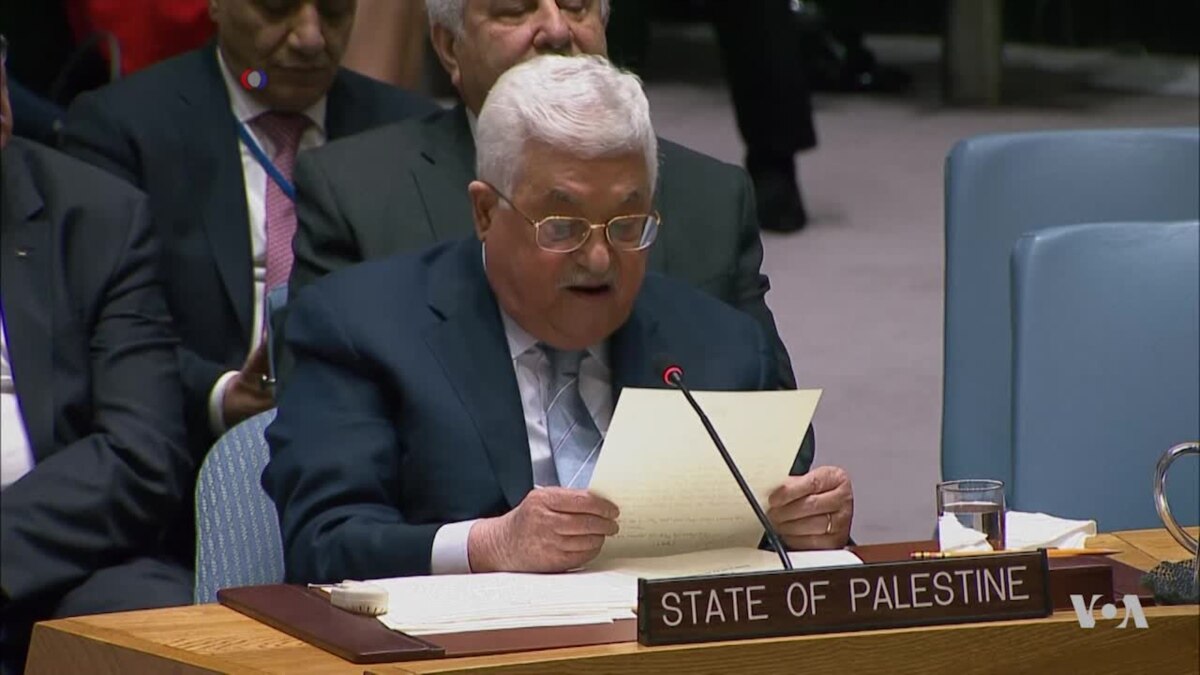
Palestinian President Mahmoud Abbas made a rare appearance at the U.N. Security Council on Tuesday, where he urged the convening of an international peace conference in the next few months. Talks between the Israelis and Palestinians have been stalled for years and tensions are mounting, giving rise to fears of a new conflict. More from VOA's UN correspondent, Margaret Besheer.
Tuesday, February 20, 2018
New Corruption Cases Entangle Netanyahu Aides
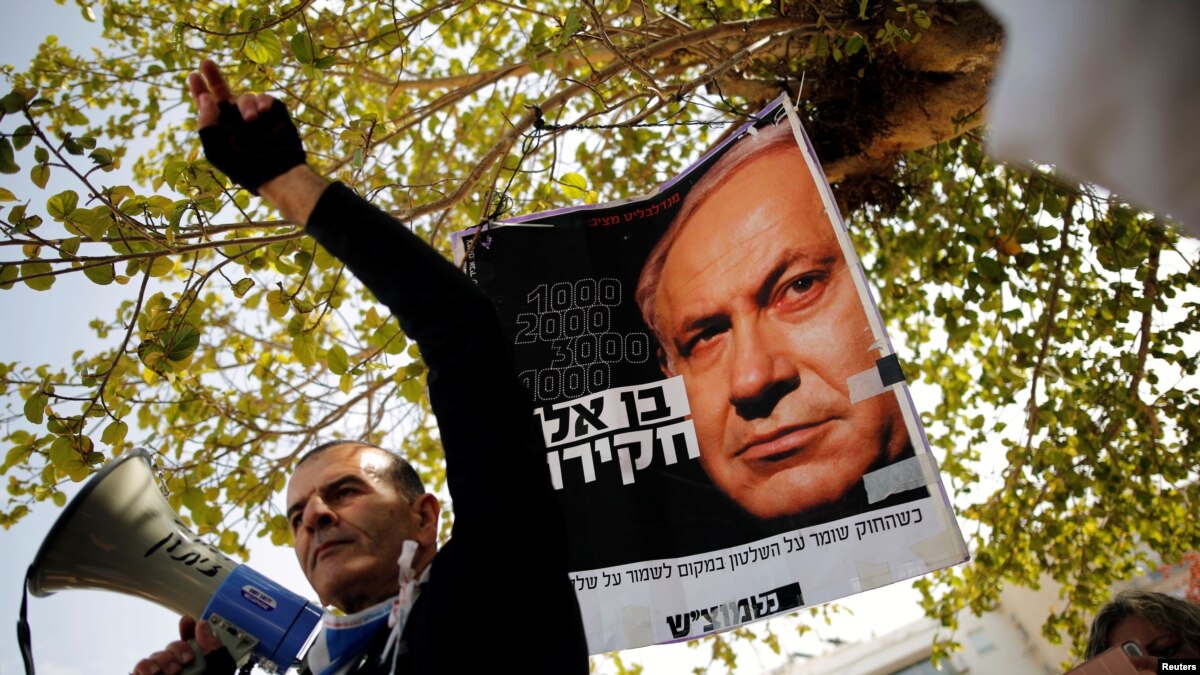
Israeli police alleged on Tuesday that Benjamin Netanyahu's former spokesman tried to bribe a judge to drop a fraud case against Netanyahu's wife, the latest corruption investigation encircling the long-serving prime minister.
The new bribery case was one of two revealed on Tuesday involving the same former spokesman, a close Netanyahu confidant. Police also named him as someone they had arrested two days earlier in a separate case involving allegations of corruption at Israel's biggest telecoms company.
The rightwing leader, in office for 12 years since 1996, has seen his dominance of Israeli politics threatened by corruption investigations since police recommended a week ago that he be indicted for bribery and fraud.
He has denied wrongdoing in what are now four separate investigations, including two in which he is personally a suspect. He says the allegations are a political "witch hunt."
In the latest case, police said former Netanyahu spokesman Nir Hefetz had offered through an intermediary in 2015 to help a judge win the post of attorney-general if she agreed to use the position to block any proceedings against Netanyahu's wife Sara.
Last September Attorney-General Avichai Mandelblit said he was considering indicting Sara Netanyahu for fraud over suspected use of state funds for personal dining and catering services amounting to some $100,000. She has denied the allegations and a final decision on charges is pending.
"Hallucinatory"
The prime minister rejected the allegation about the attempt to bribe the judge, calling it "hallucinatory."
"I never approached Nir Hefetz about this, he never proposed to me anything about it, and you know what? I do not believe he raised the possibility with anyone," Netanyahu said.
A lawyer for Hefetz could not be reached.
In the other case revealed on Tuesday, police said they had arrested Hefetz and another Netanyahu confidant, Shlomo Filber, who once ran the Communications Ministry, over allegations of corruption involving the telecoms firm Bezeq.
Bezeq's main shareholder, Shaul Elovitch, was also arrested, along with his wife and son, and Bezeq's CEO Stella Handler.
Elovitch is a family friend of the Netanyahus. The arrests took place on Sunday but were not disclosed for two days under standard Israeli procedure.
Police suspect Bezeq received regulatory benefits in return for providing favorable media coverage of Netanyahu on Walla, a news website that is controlled by Elovitch's holding company Eurocom.
Elovitch has denied any wrongdoing, as have his wife and son, and Bezeq CEO Handler, a Eurocom spokeswoman said. Filber's lawyer declined to comment.
Netanyahu is not a suspect in that case but Israeli media said he was likely to be questioned soon.
Last week, police recommended Netanyahu be indicted in two cases. In one he is suspected of bribery over his acknowledged receipt of gifts from wealthy businessmen, which police say were worth nearly $300,000. In the other, he is alleged to have offered the publisher of Israel's biggest daily to curtail circulation of a rival newspaper in return for positive coverage.
Netanyahu, who has maintained his normal working schedule and is due to meet U.S. President Donald Trump in Washington on March 5, has denied all the allegations and vowed to remain in office to serve out his term, which runs until 2019.
Mandelblit is weighing indictments in those investigations, with a decision possibly months away.
Read More New Corruption Cases Entangle Netanyahu Aides : http://ift.tt/2EKanoISearch
Featured Post
Tornado Watch for parts of Middle Georgia - wgxa.tv
[unable to retrieve full-text content] Tornado Watch for parts of Middle Georgia wgxa.tv "middle" - Google News December 30...
Postingan Populer
-
[unable to retrieve full-text content] Monroe County Middle School goes virtual next week due to COVID-19 exposure wgxa.tv "middl...
-
Members of the Meany Middle School PTSA are calling on Mayor Jenny Durkan , Seattle Parks , and City of Seattle officials to give a group...
-
The global demand for palm oil is driving the fires in Indonesia Quartz Palm oil is in your infant formula, chips, and shampoo. Develope...